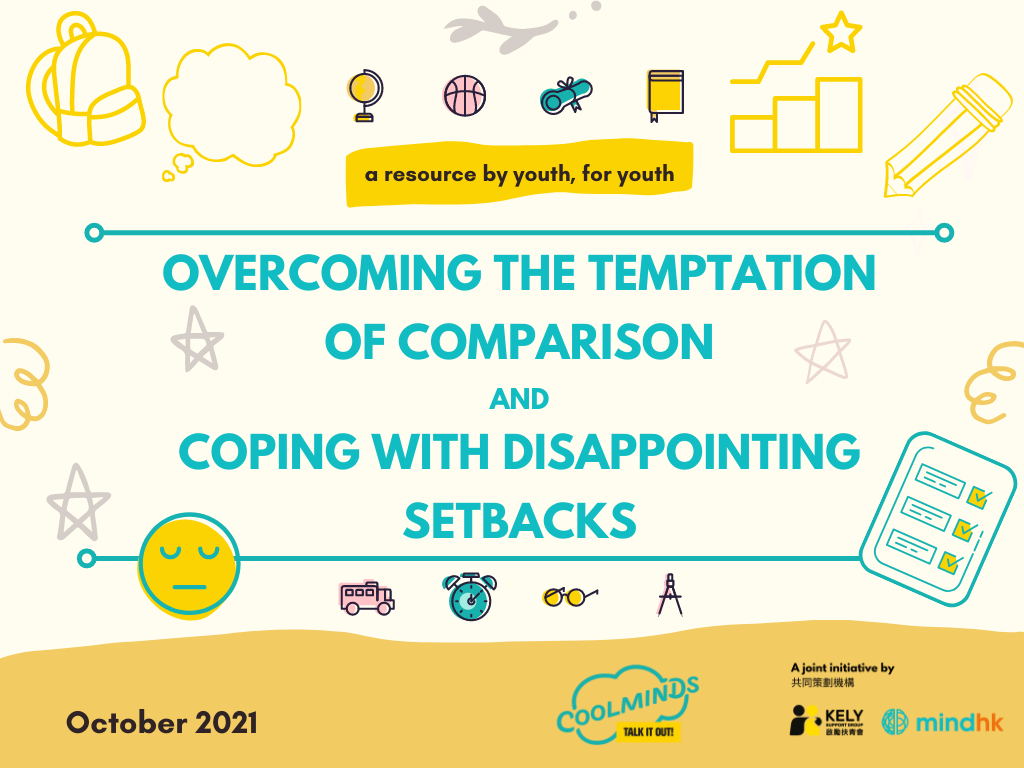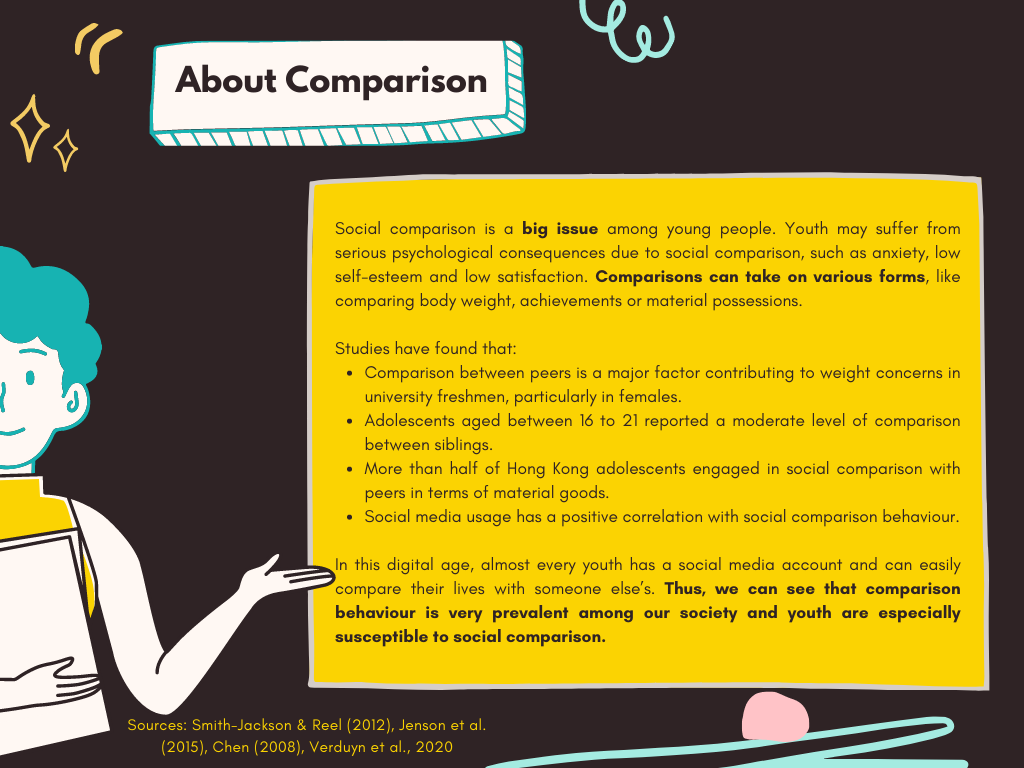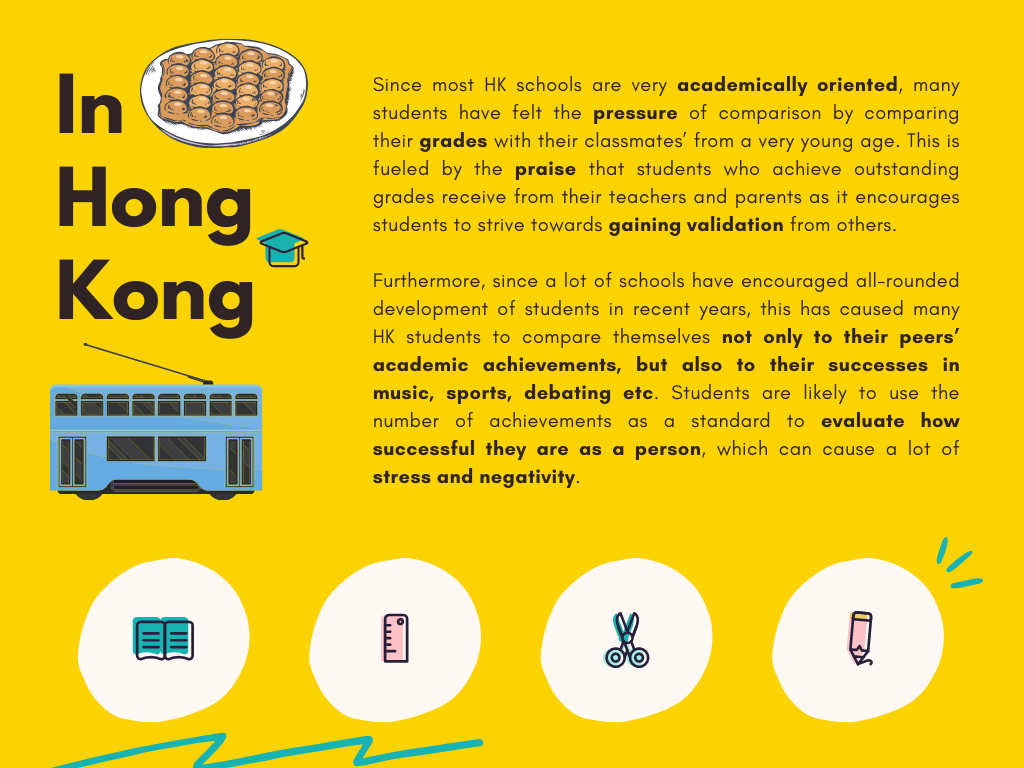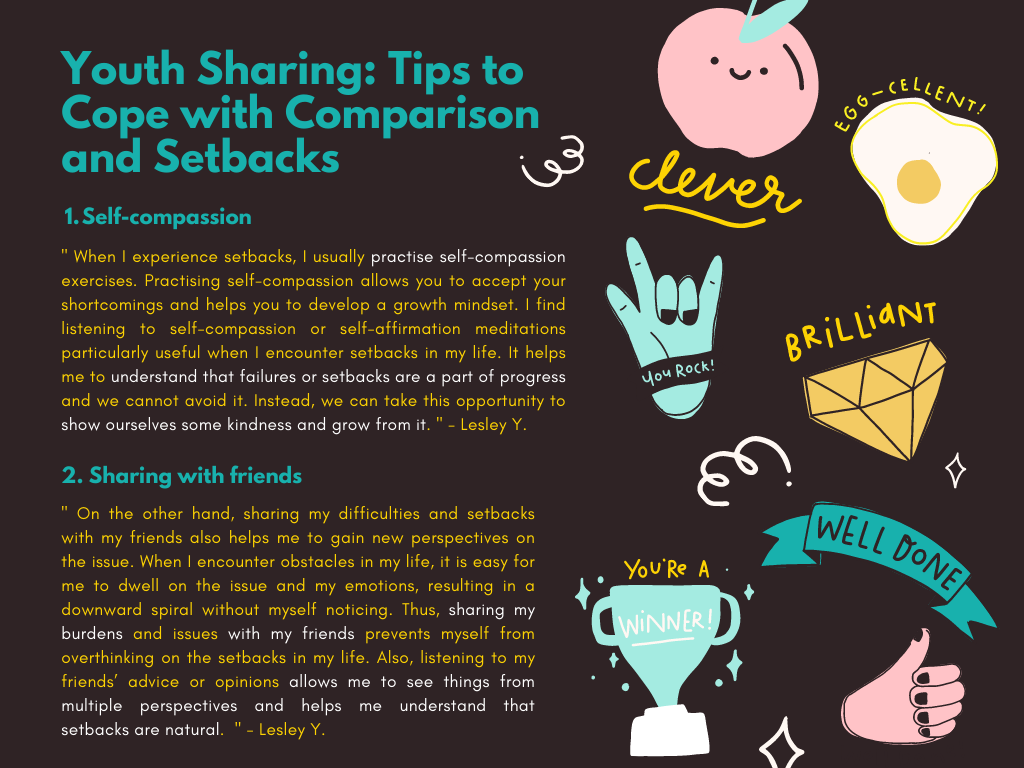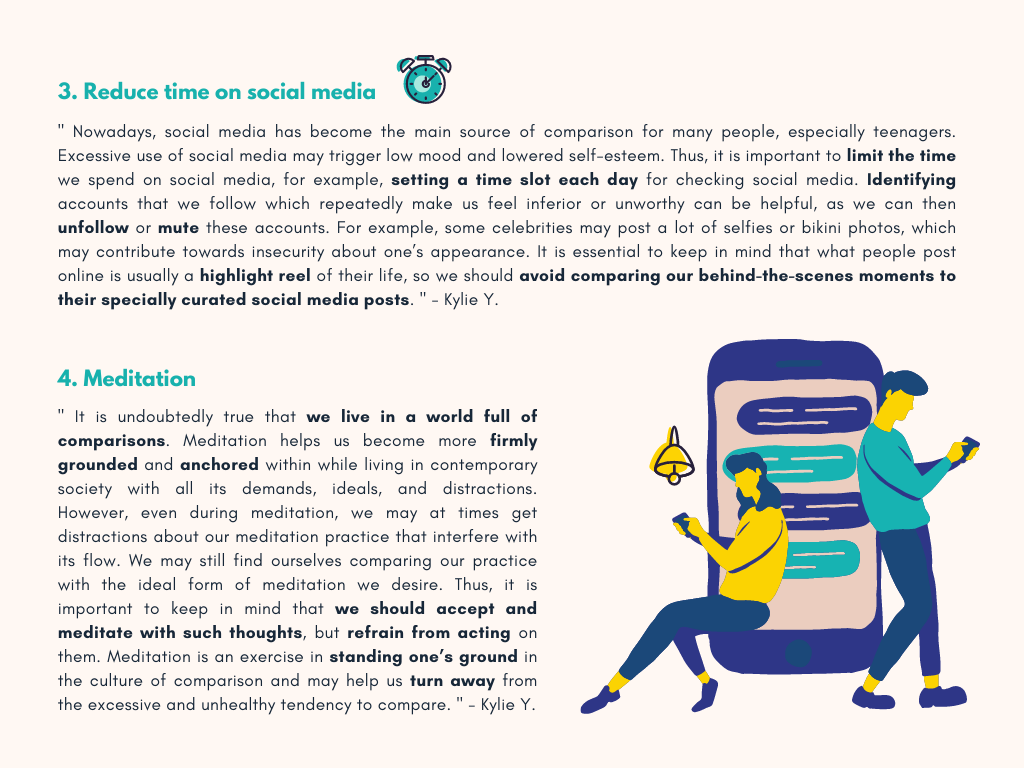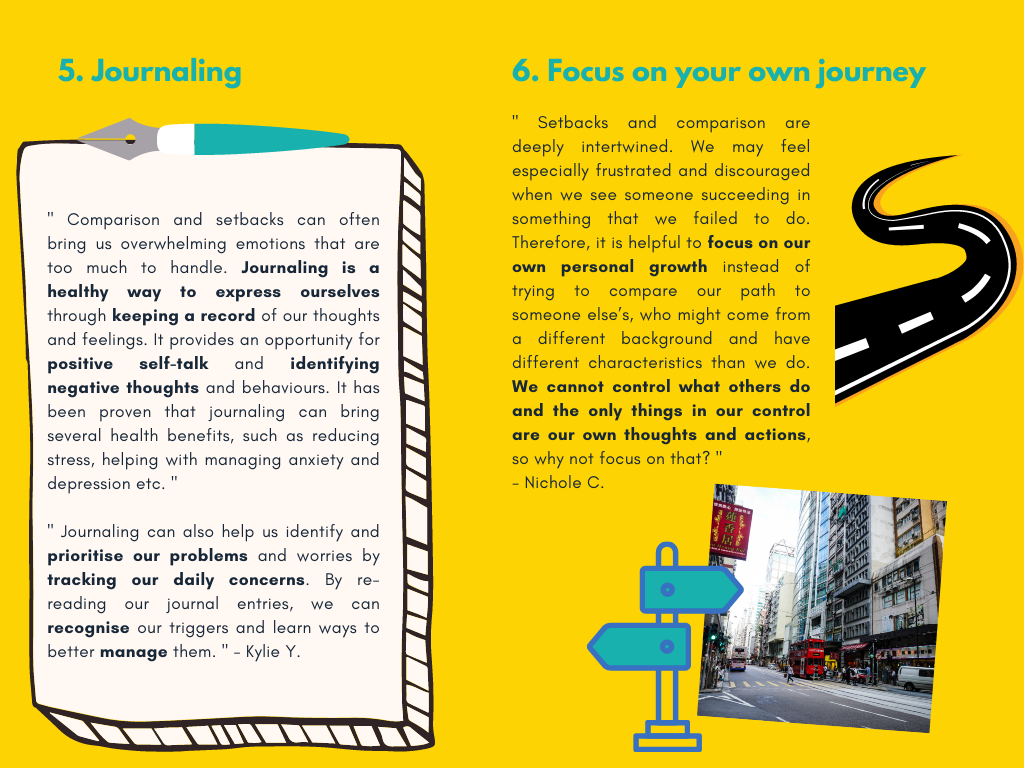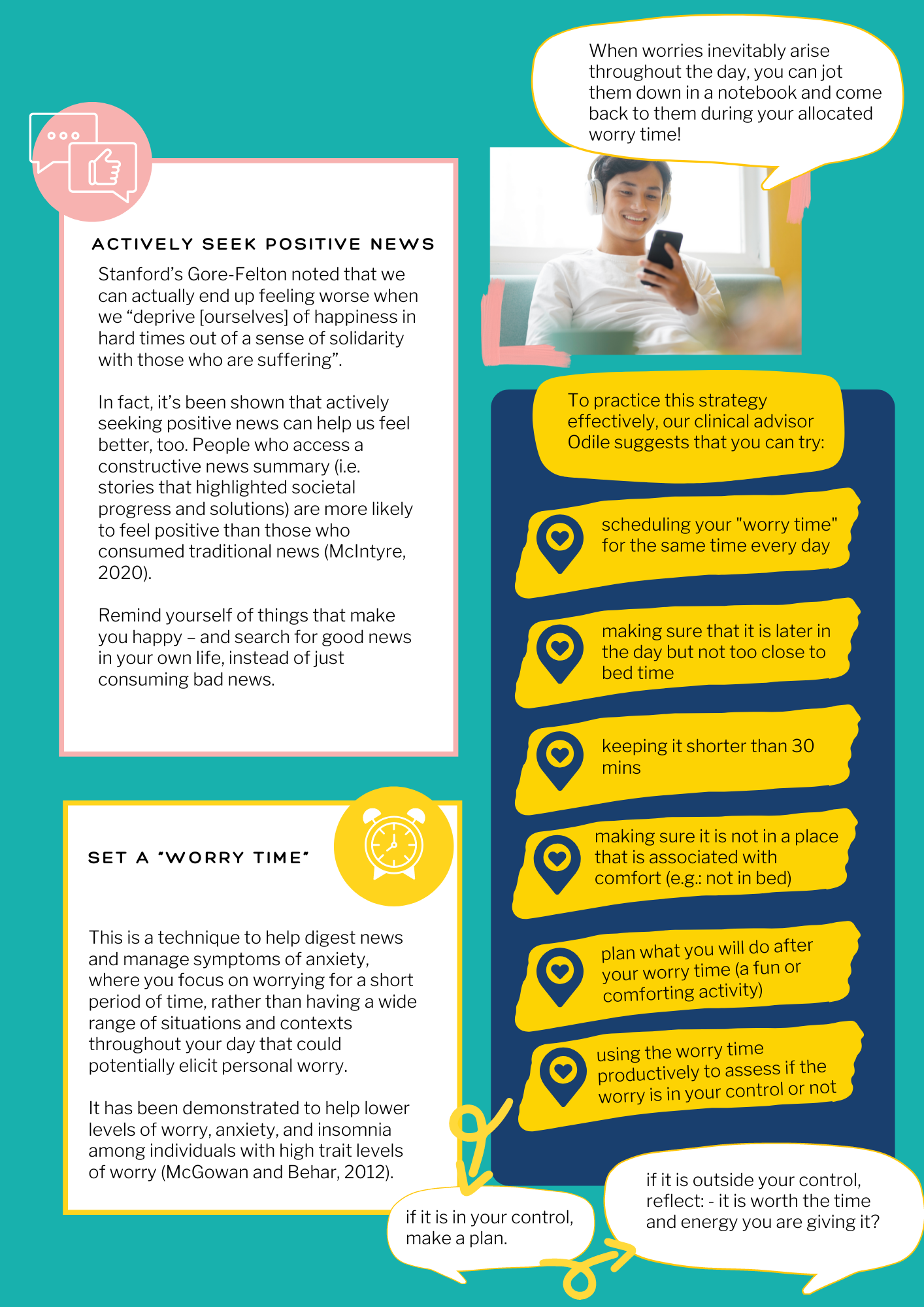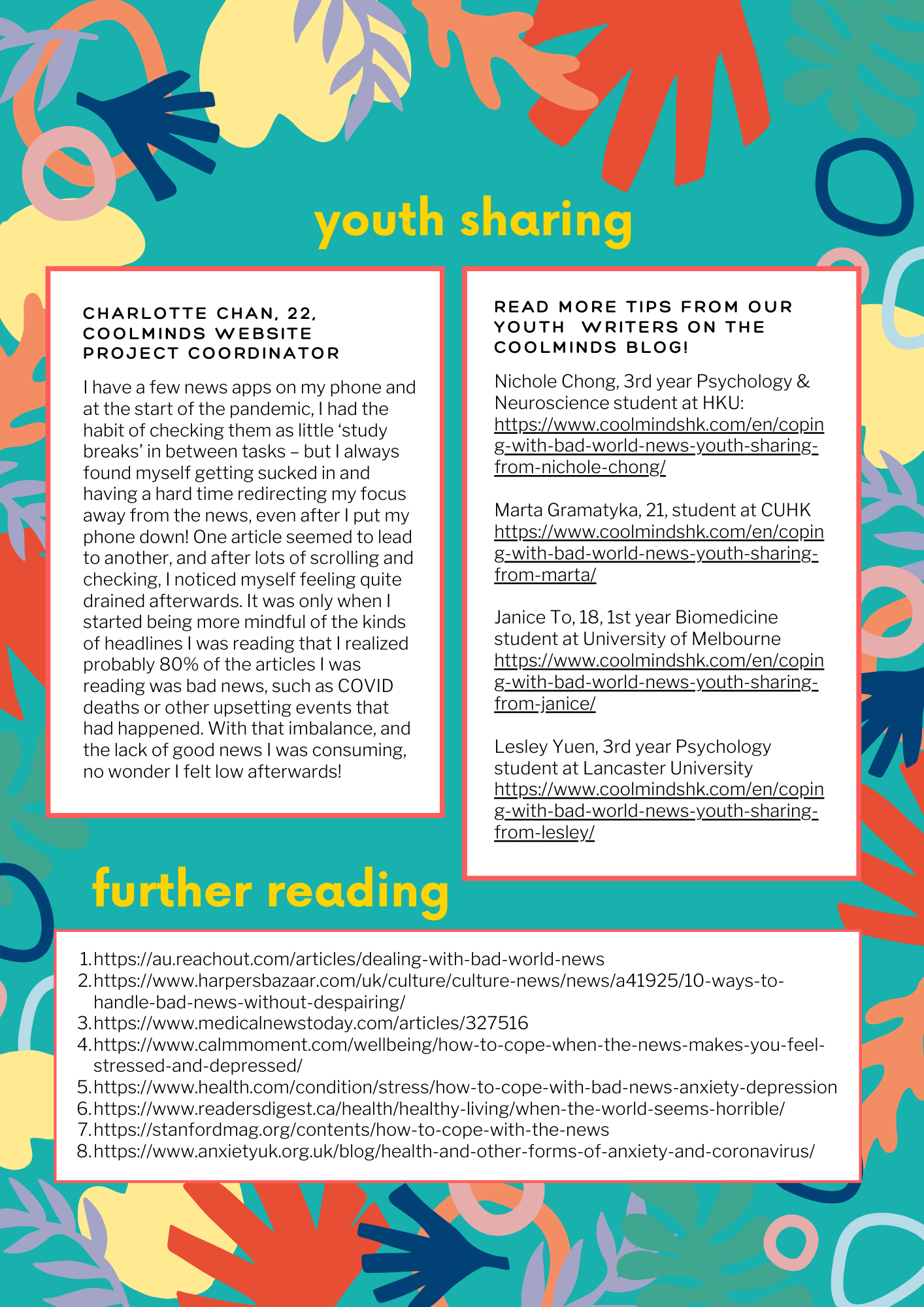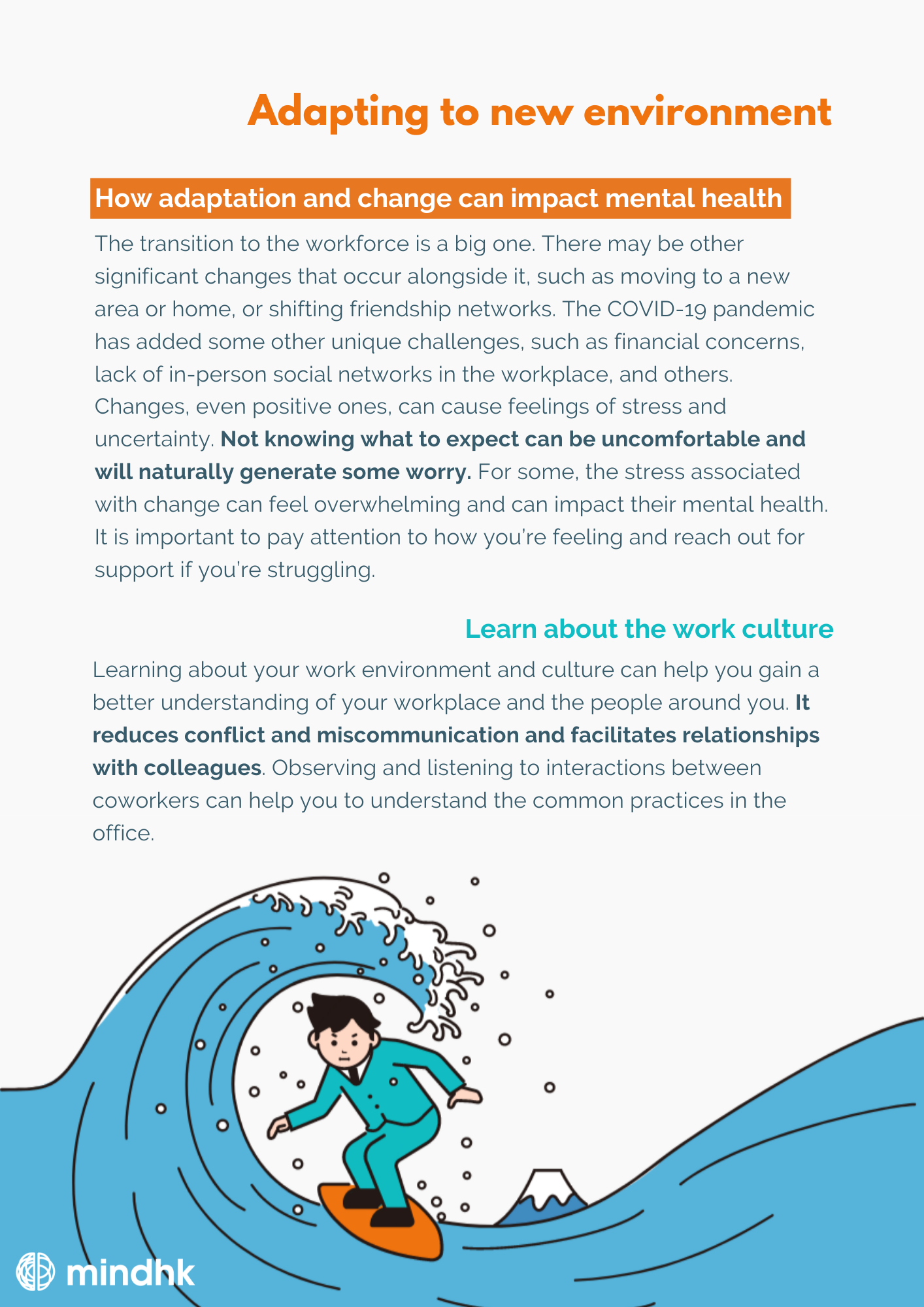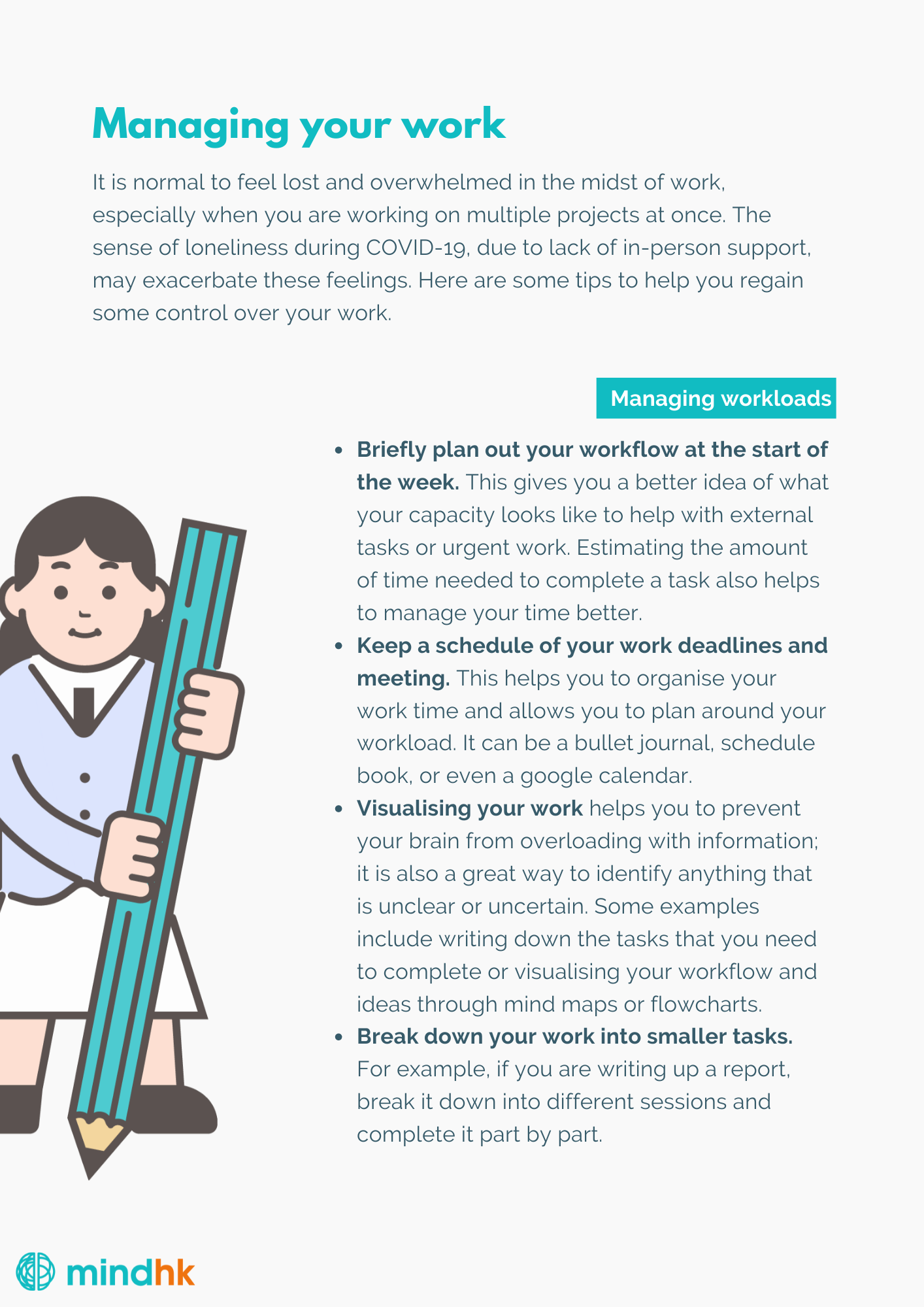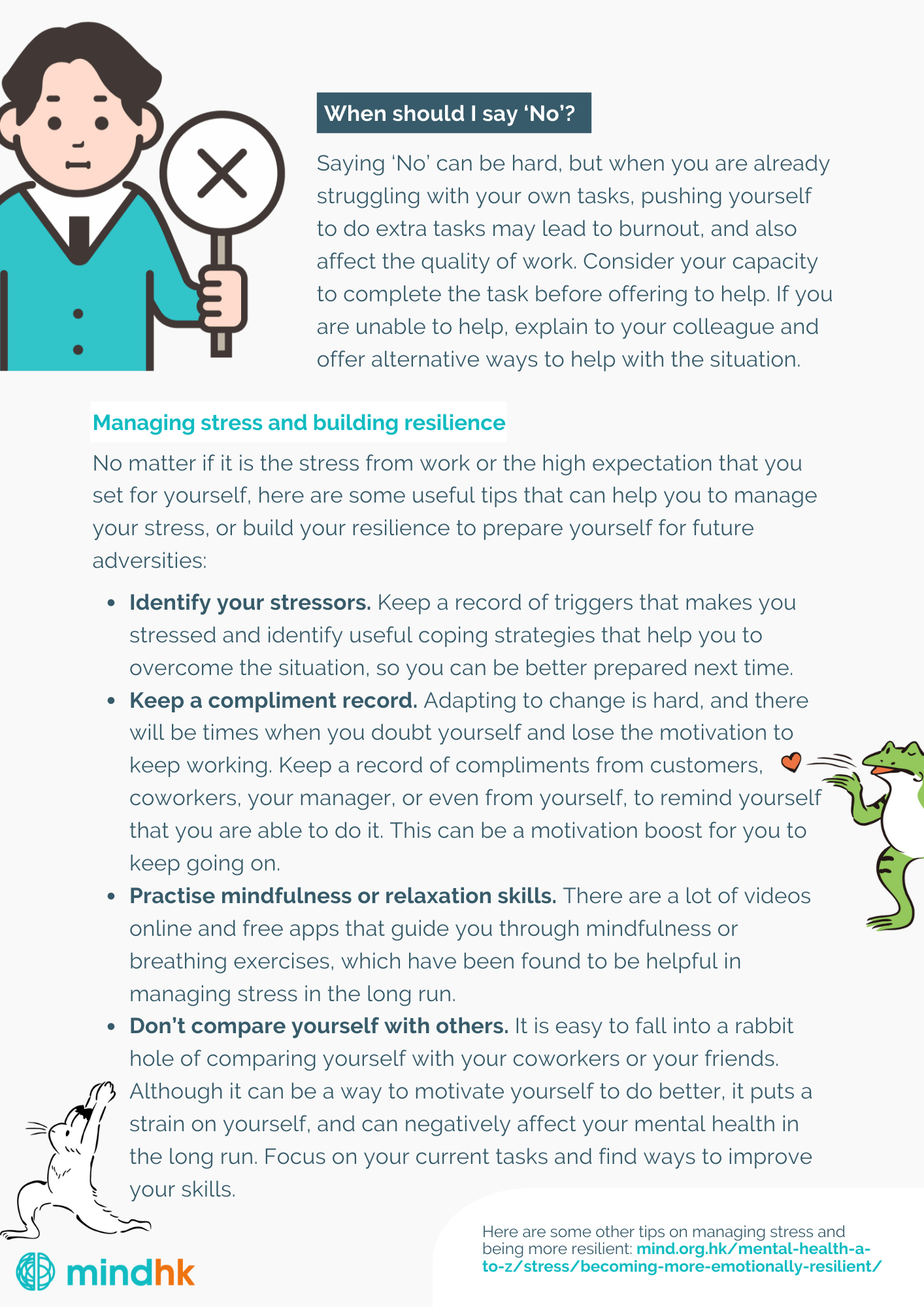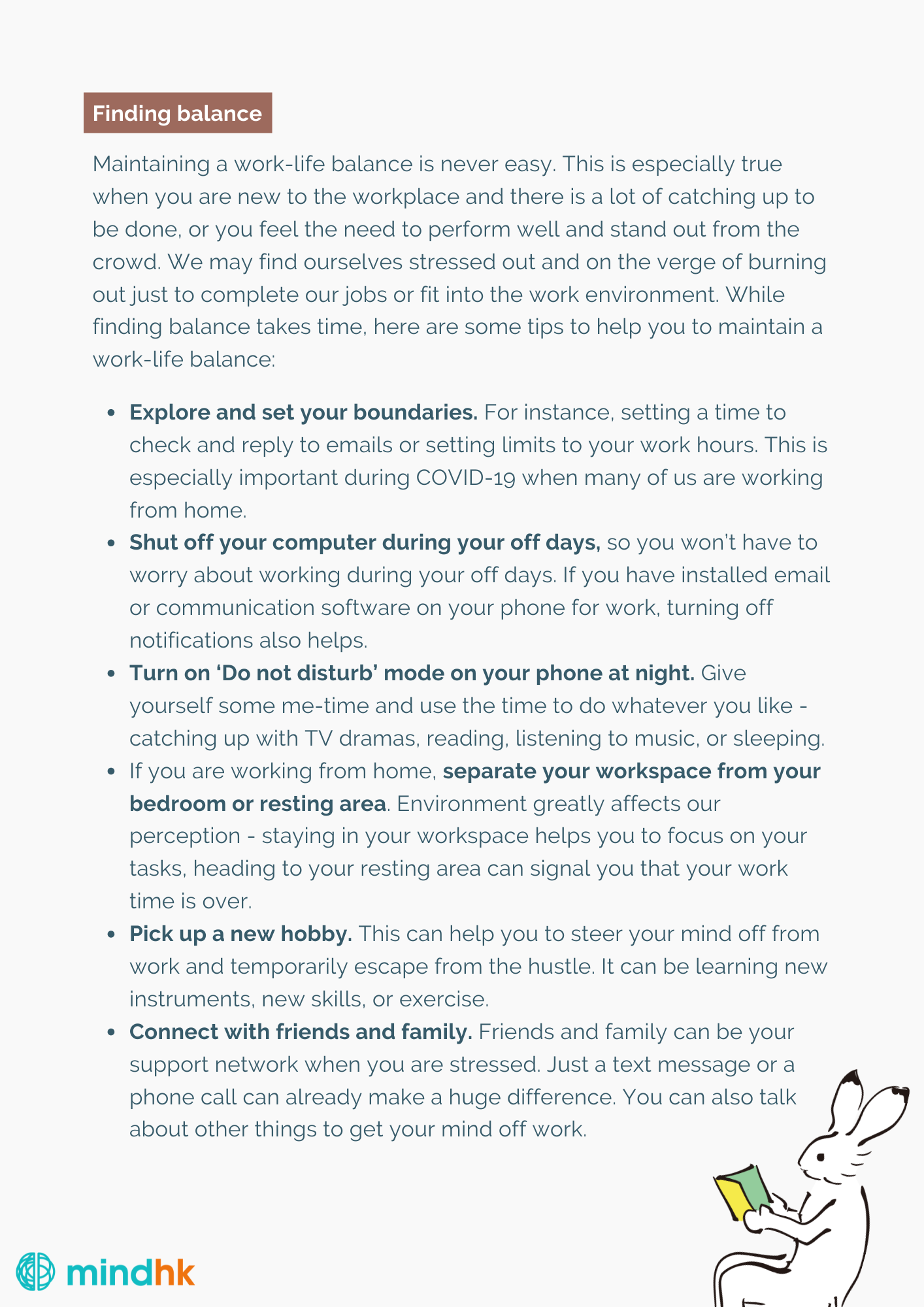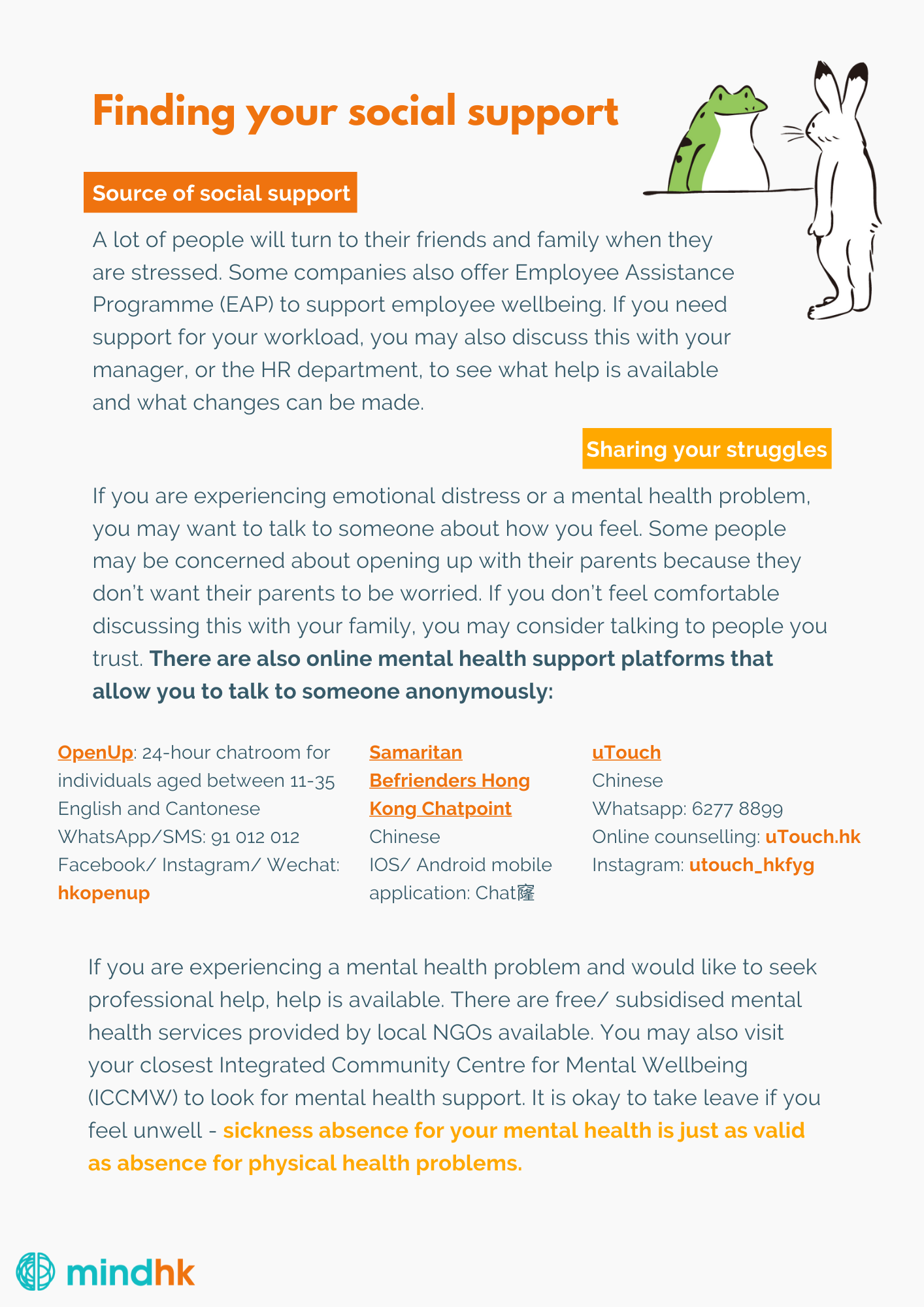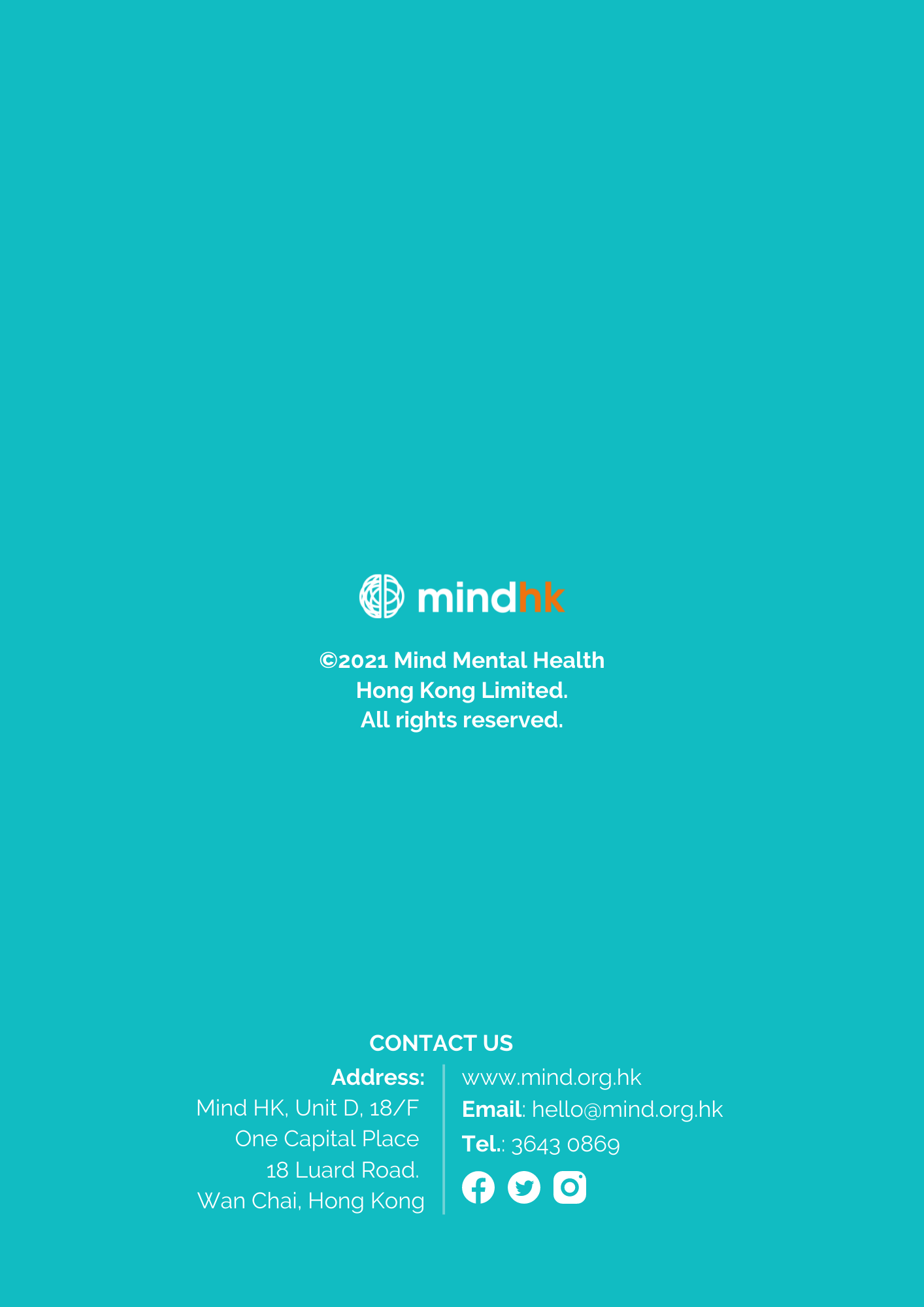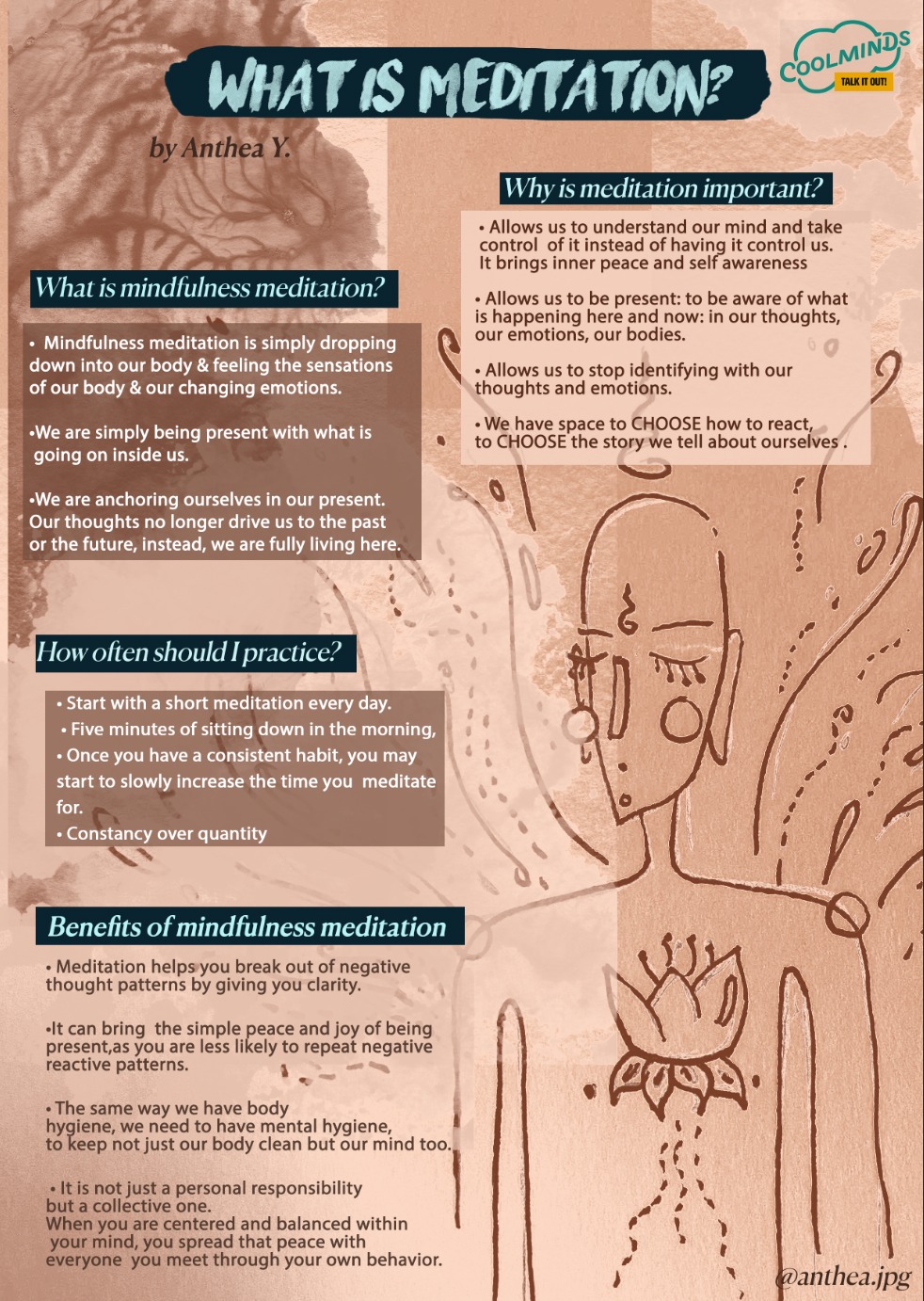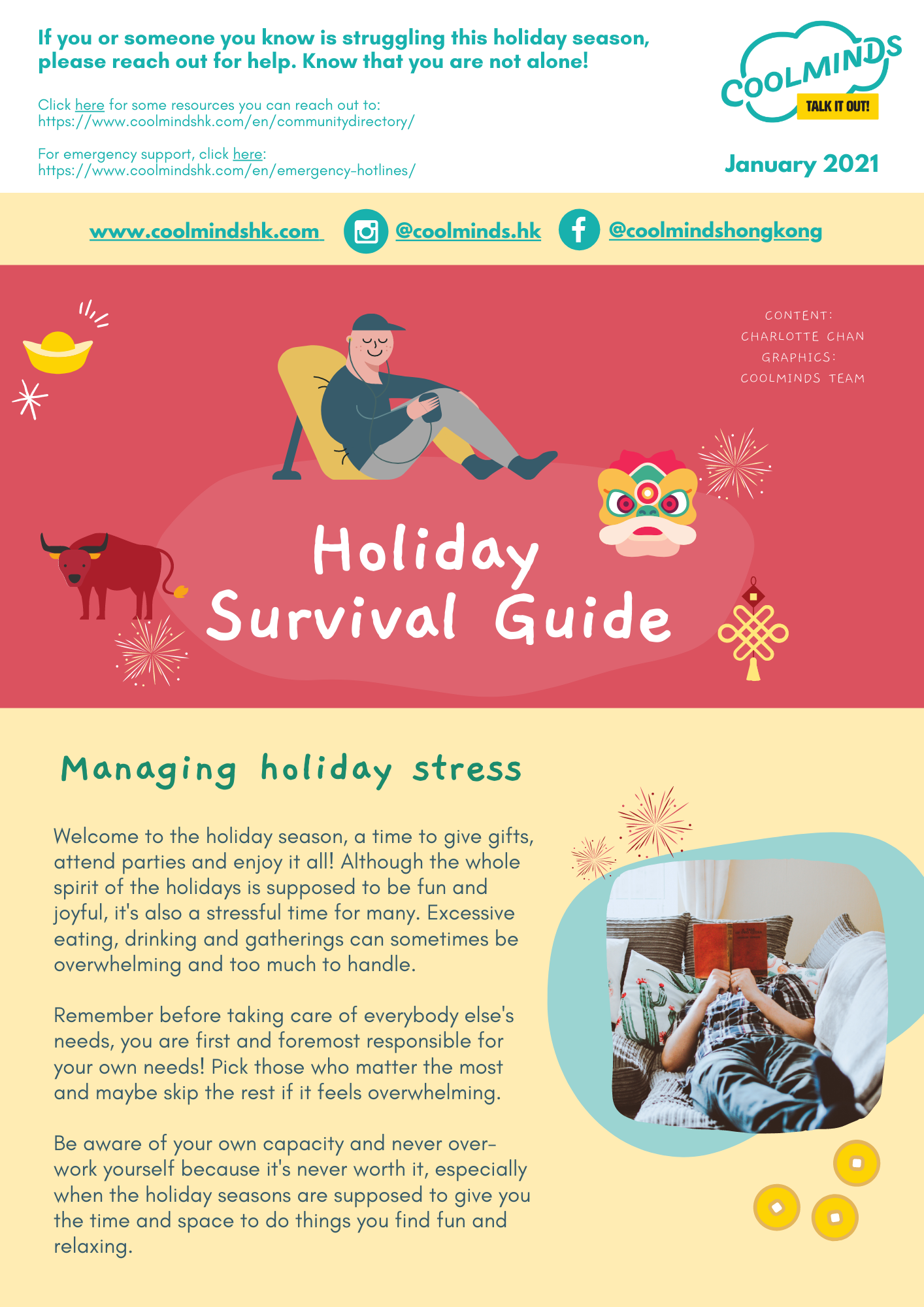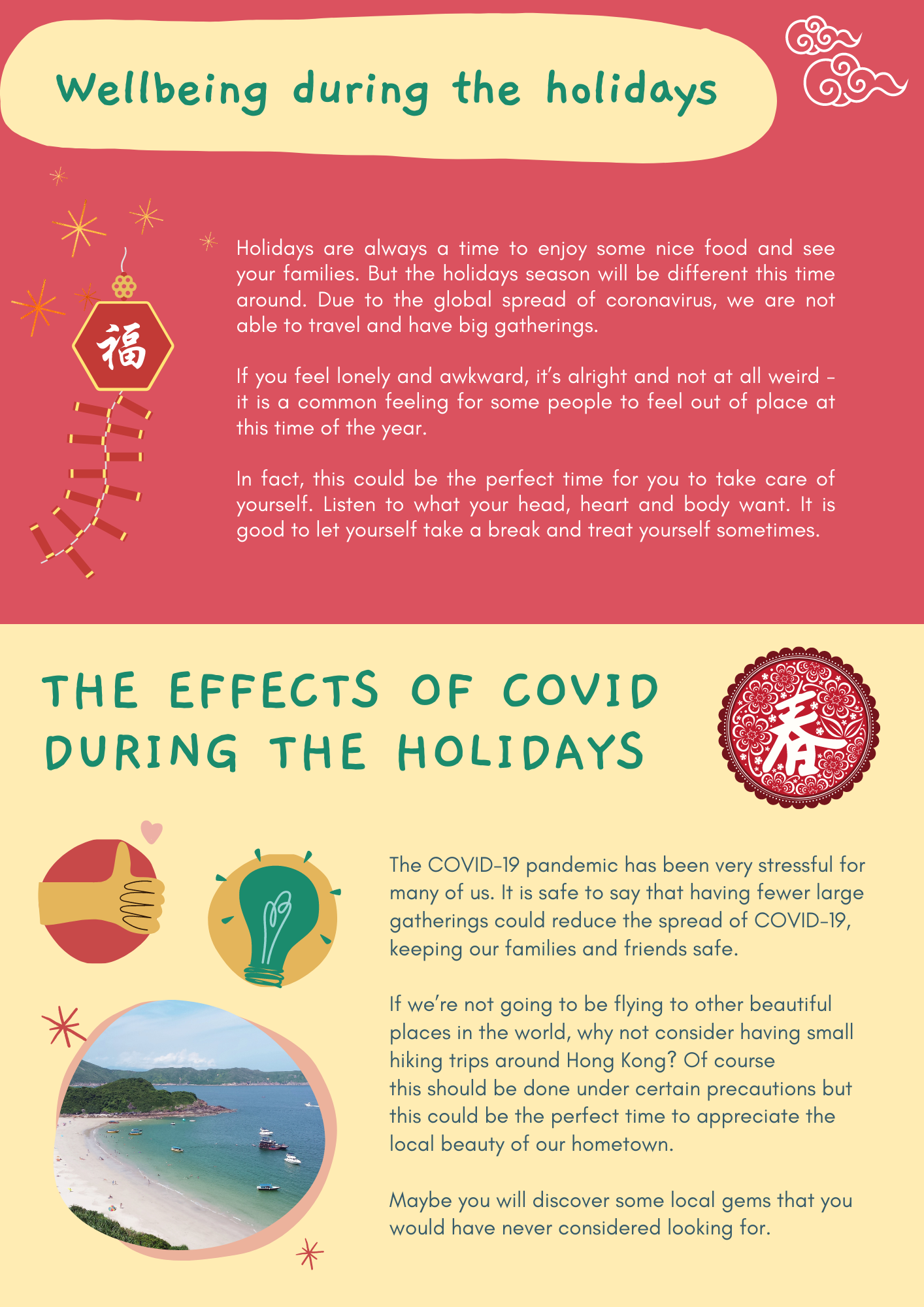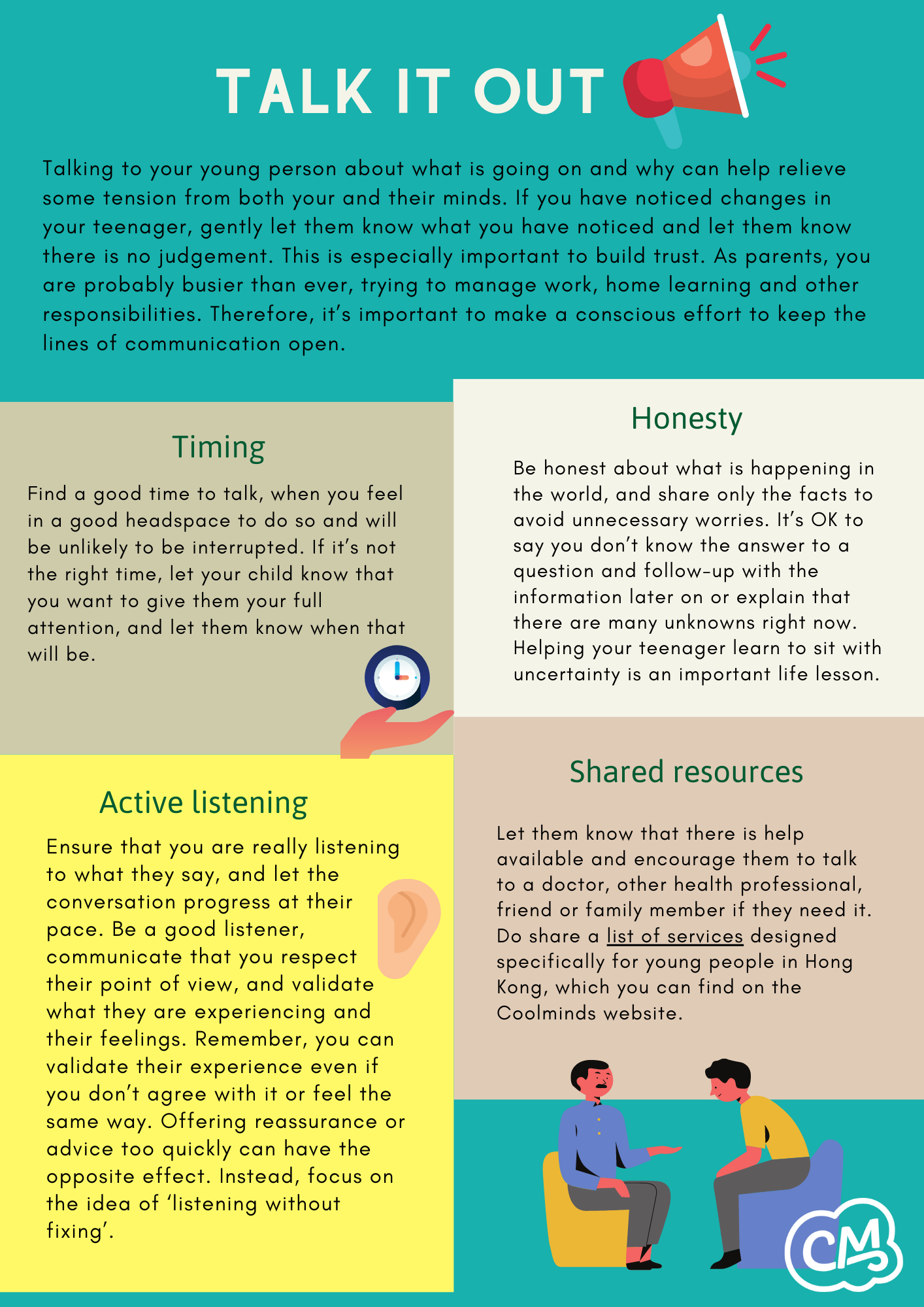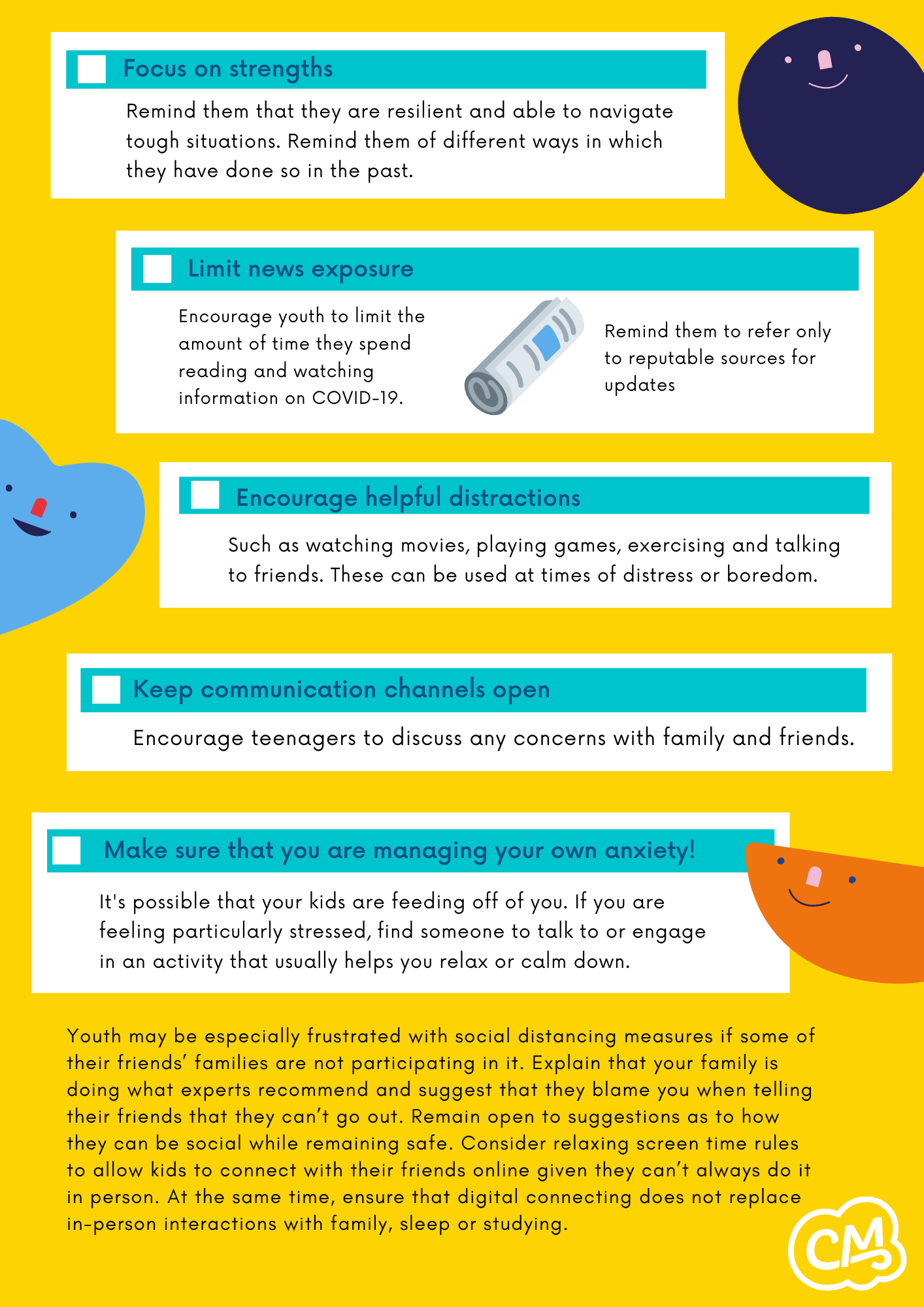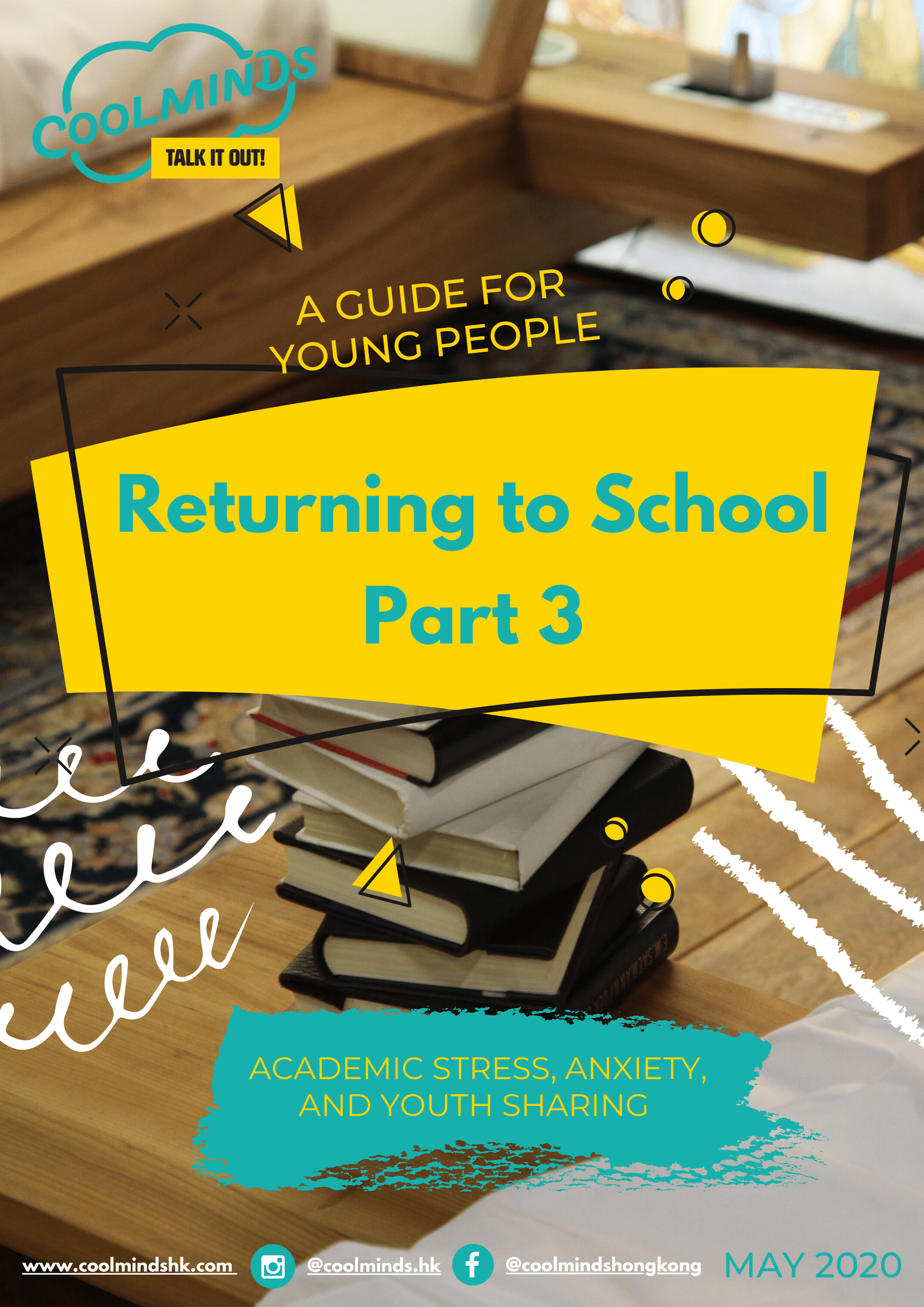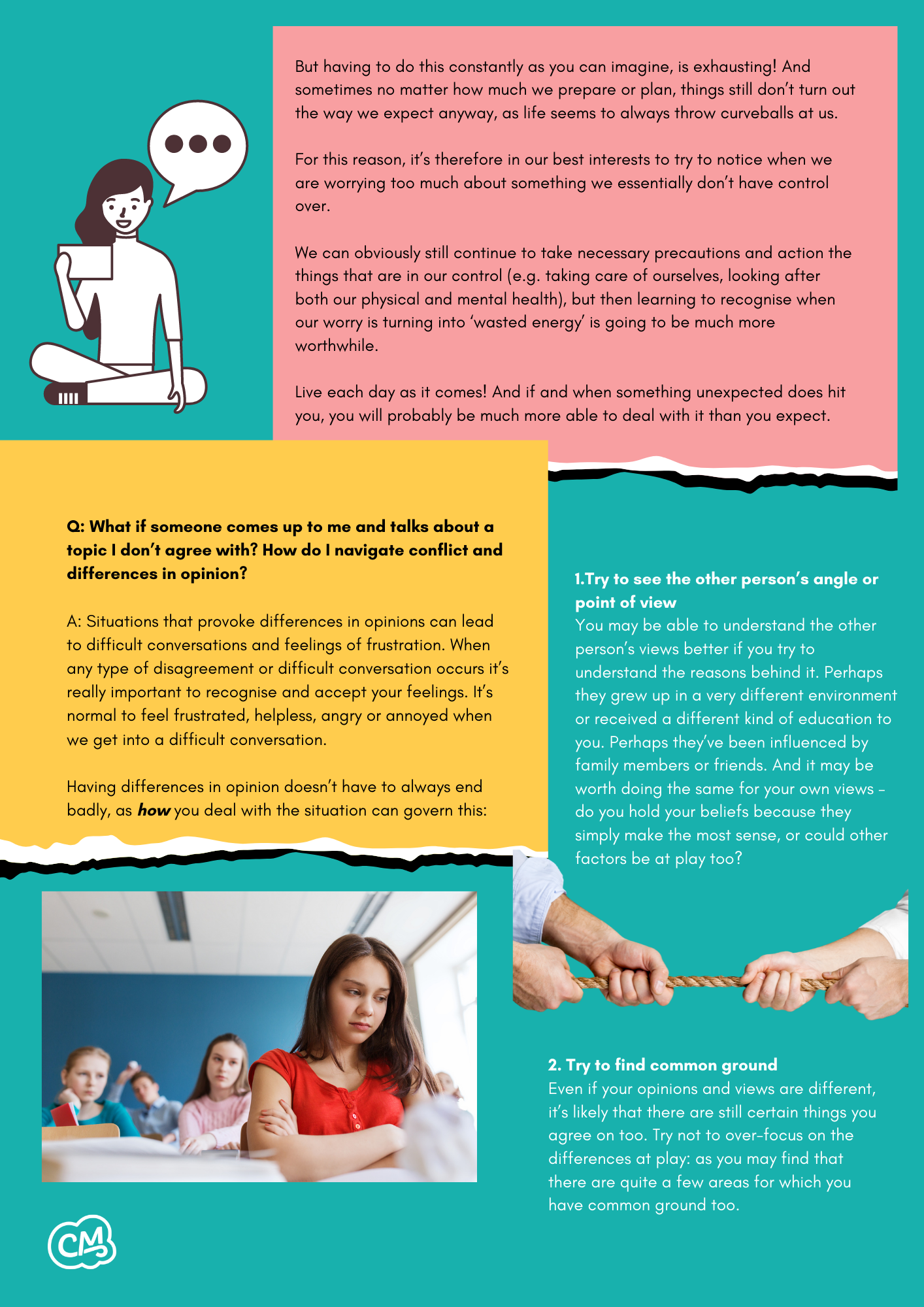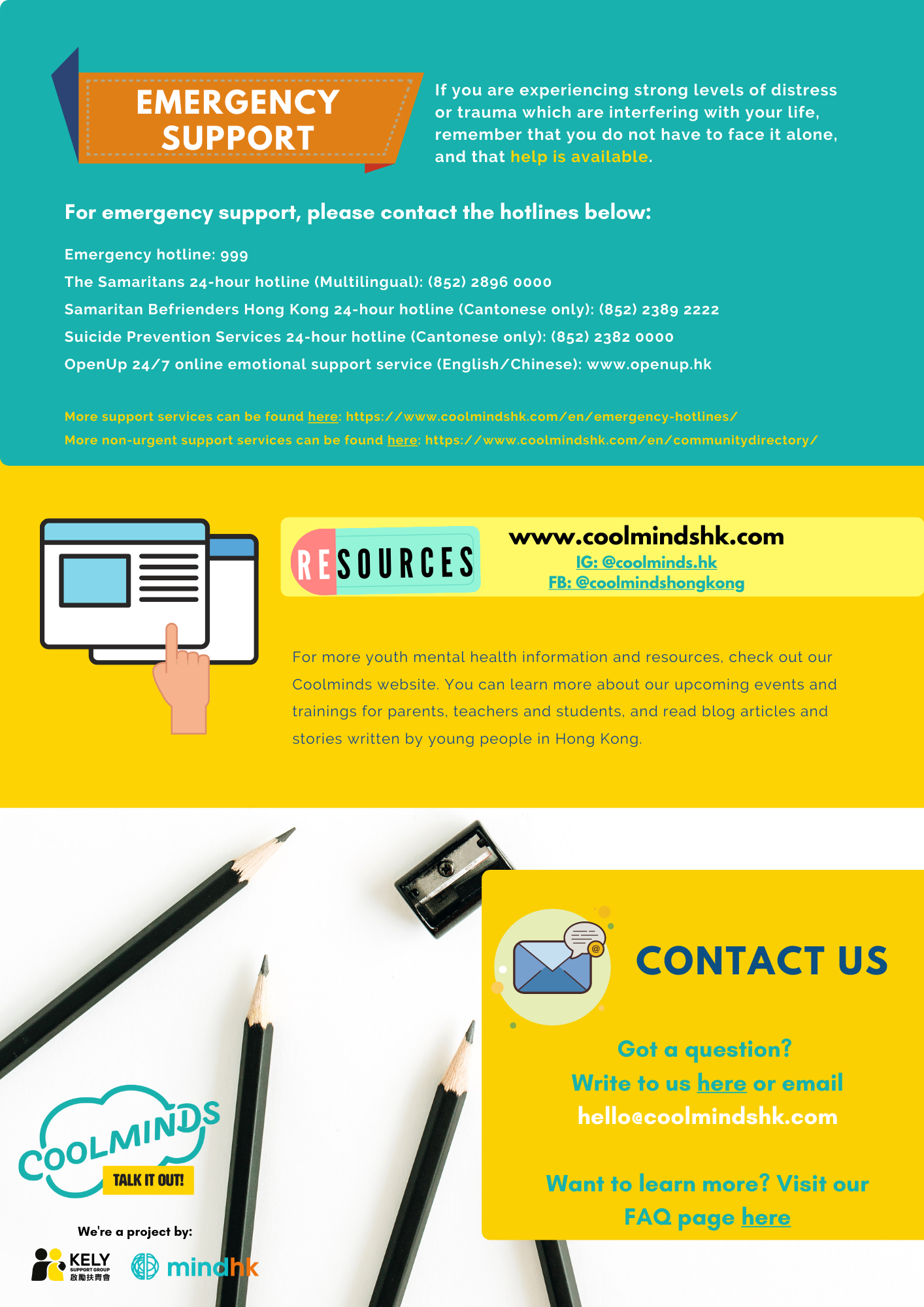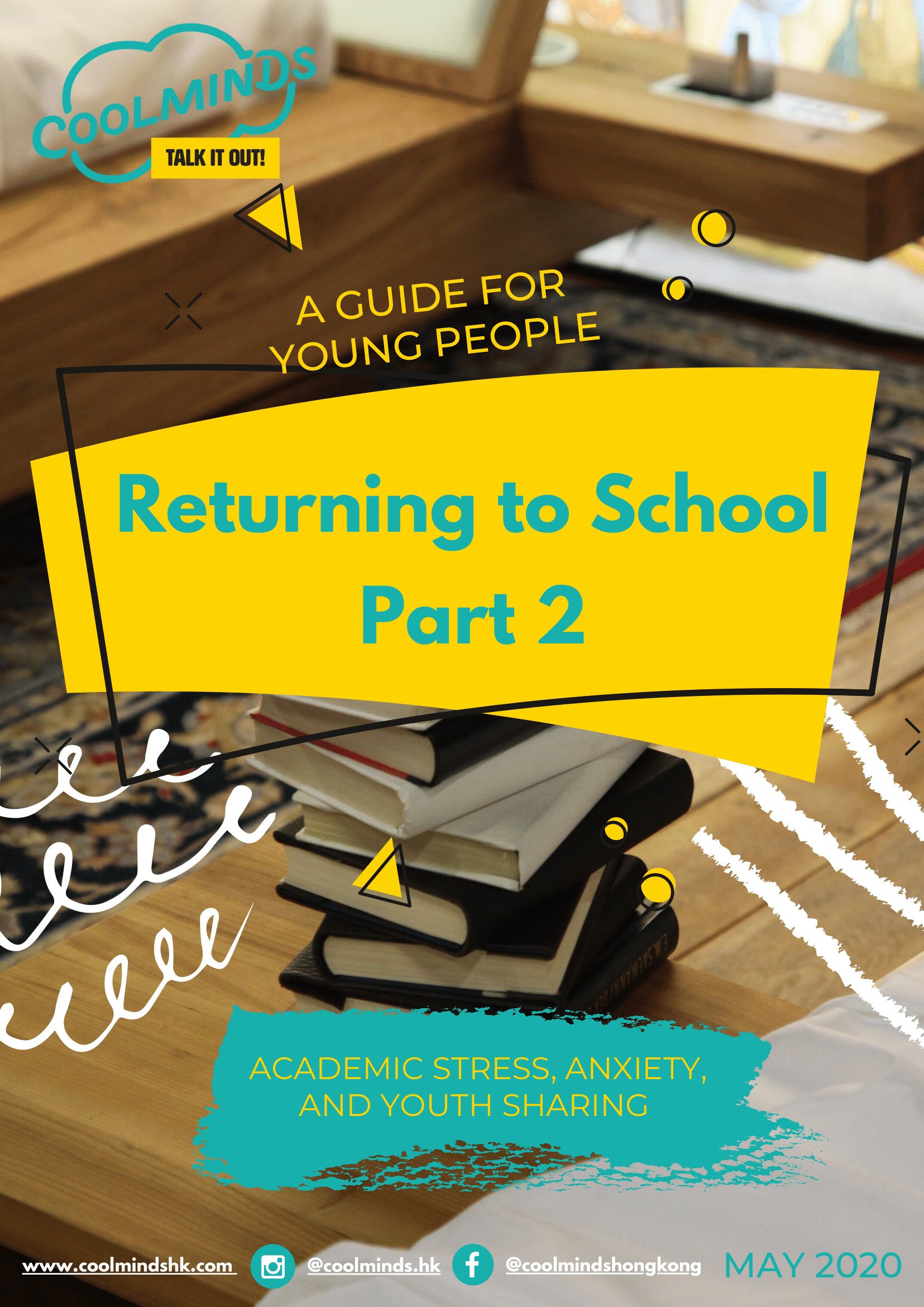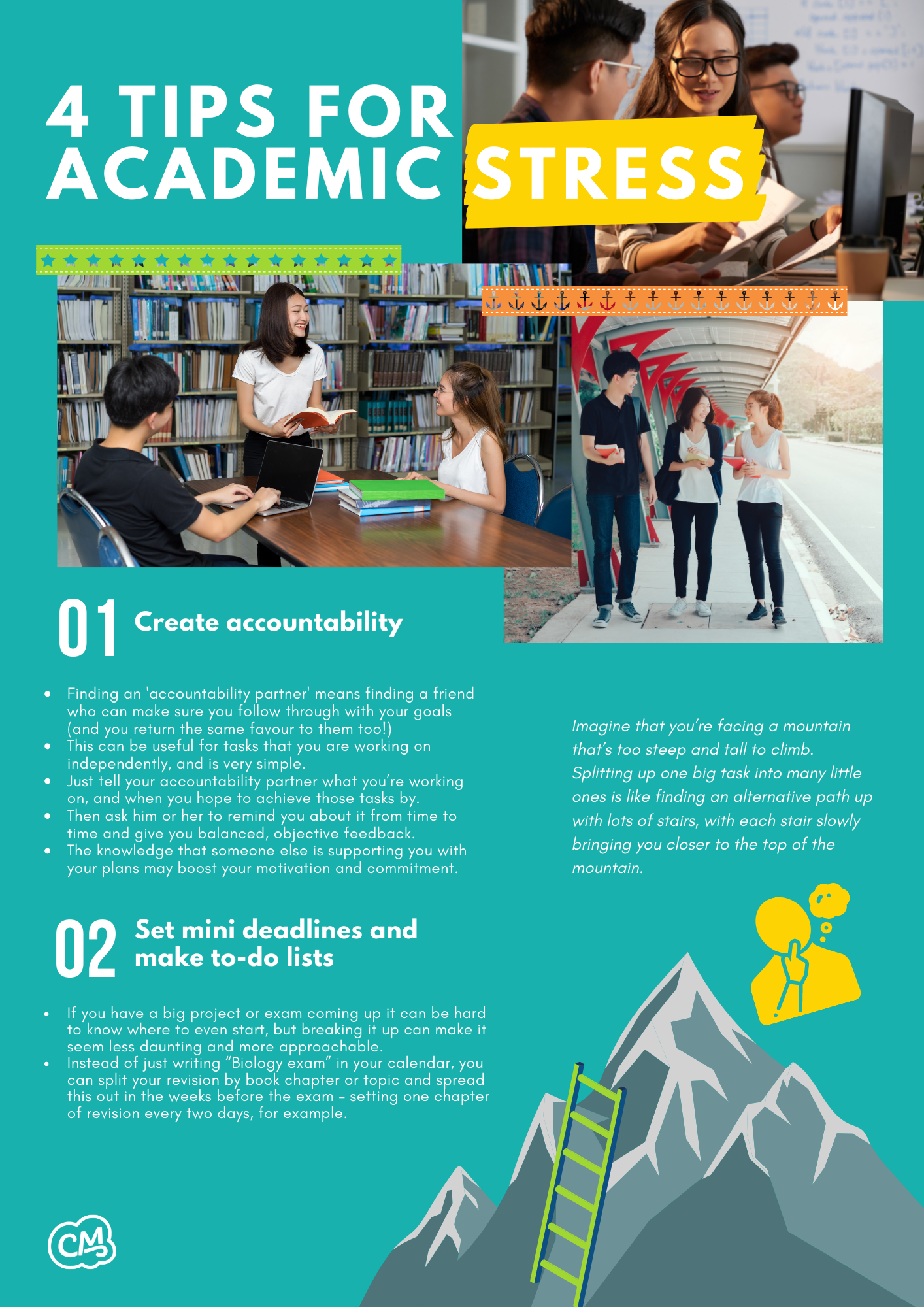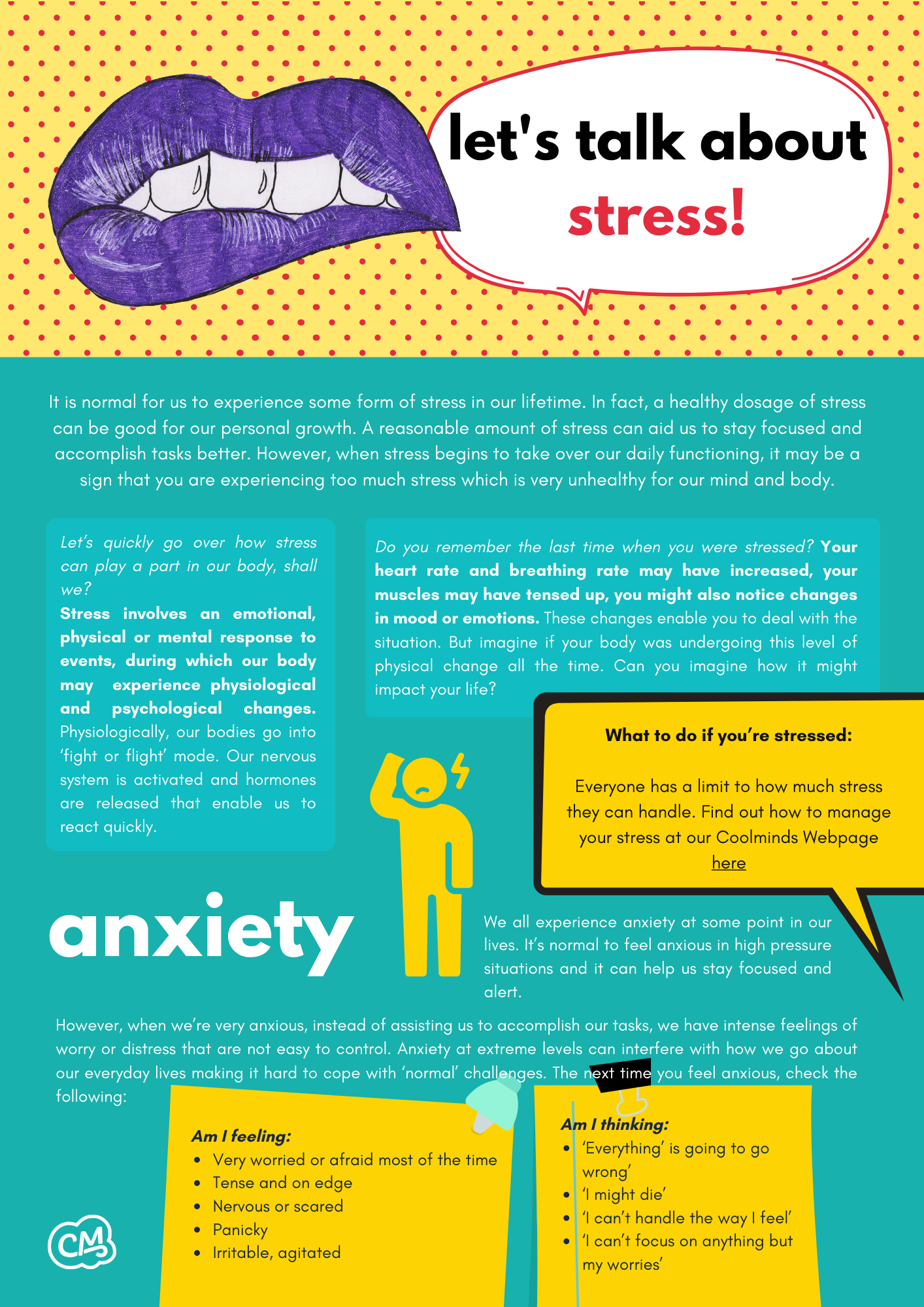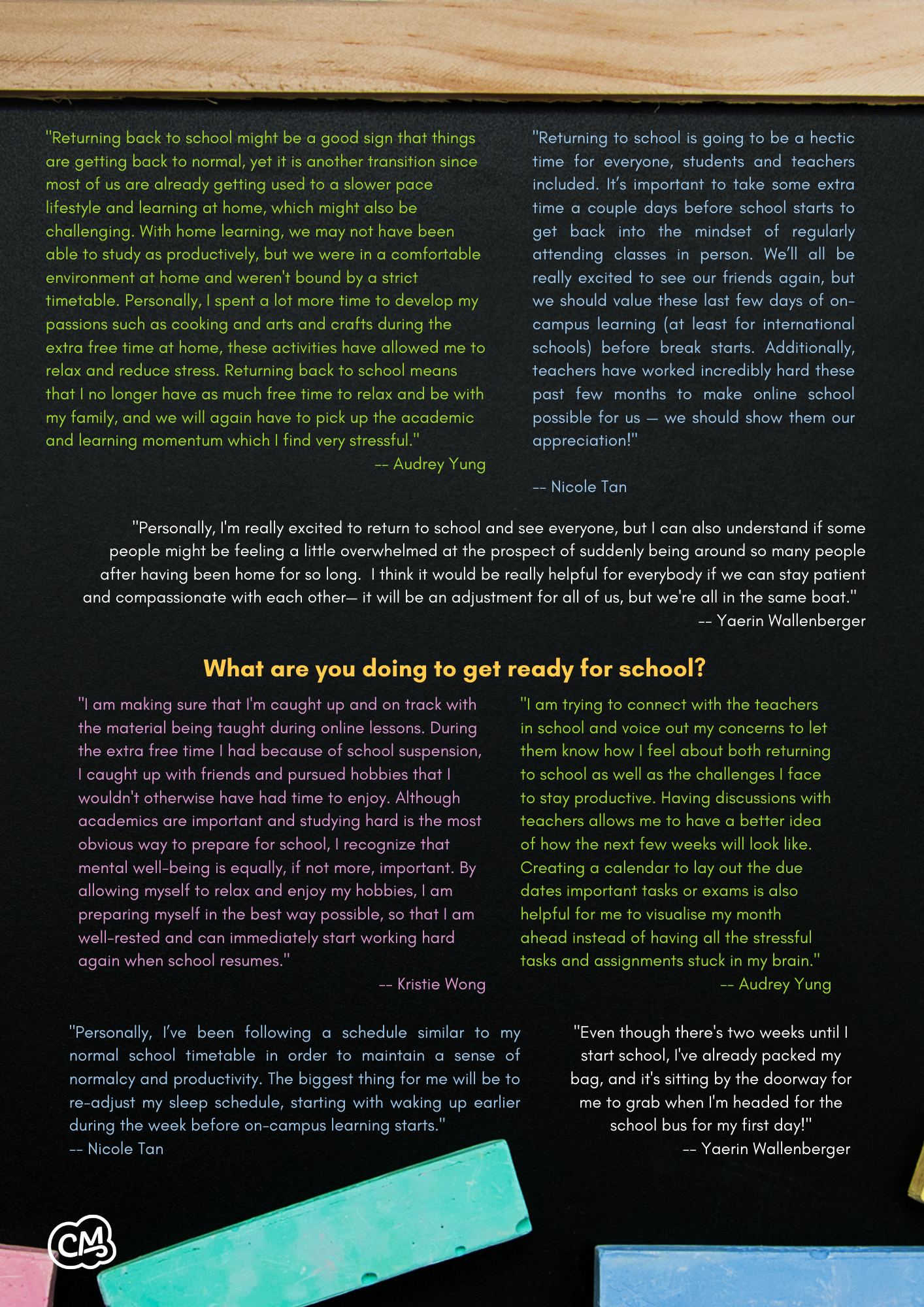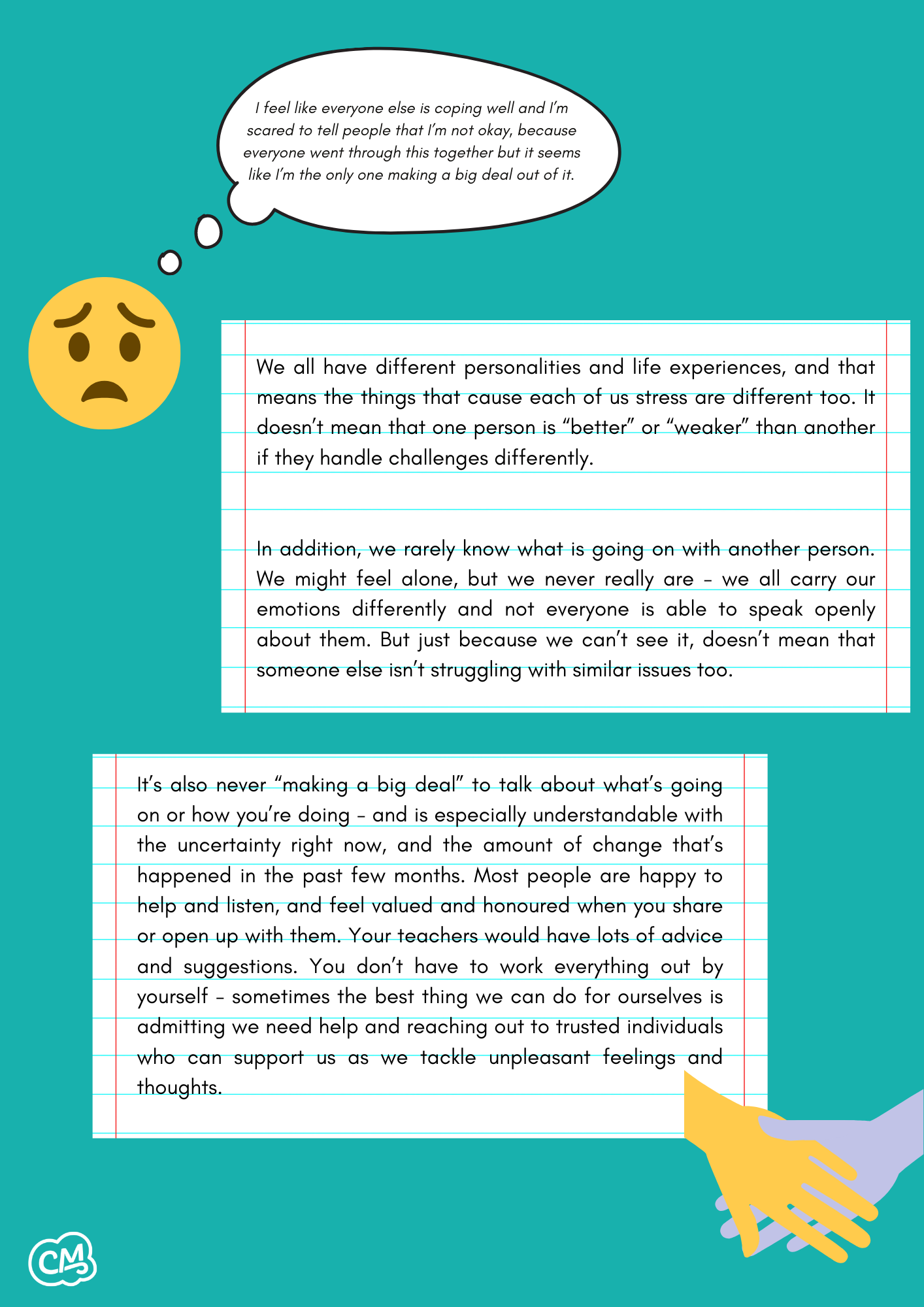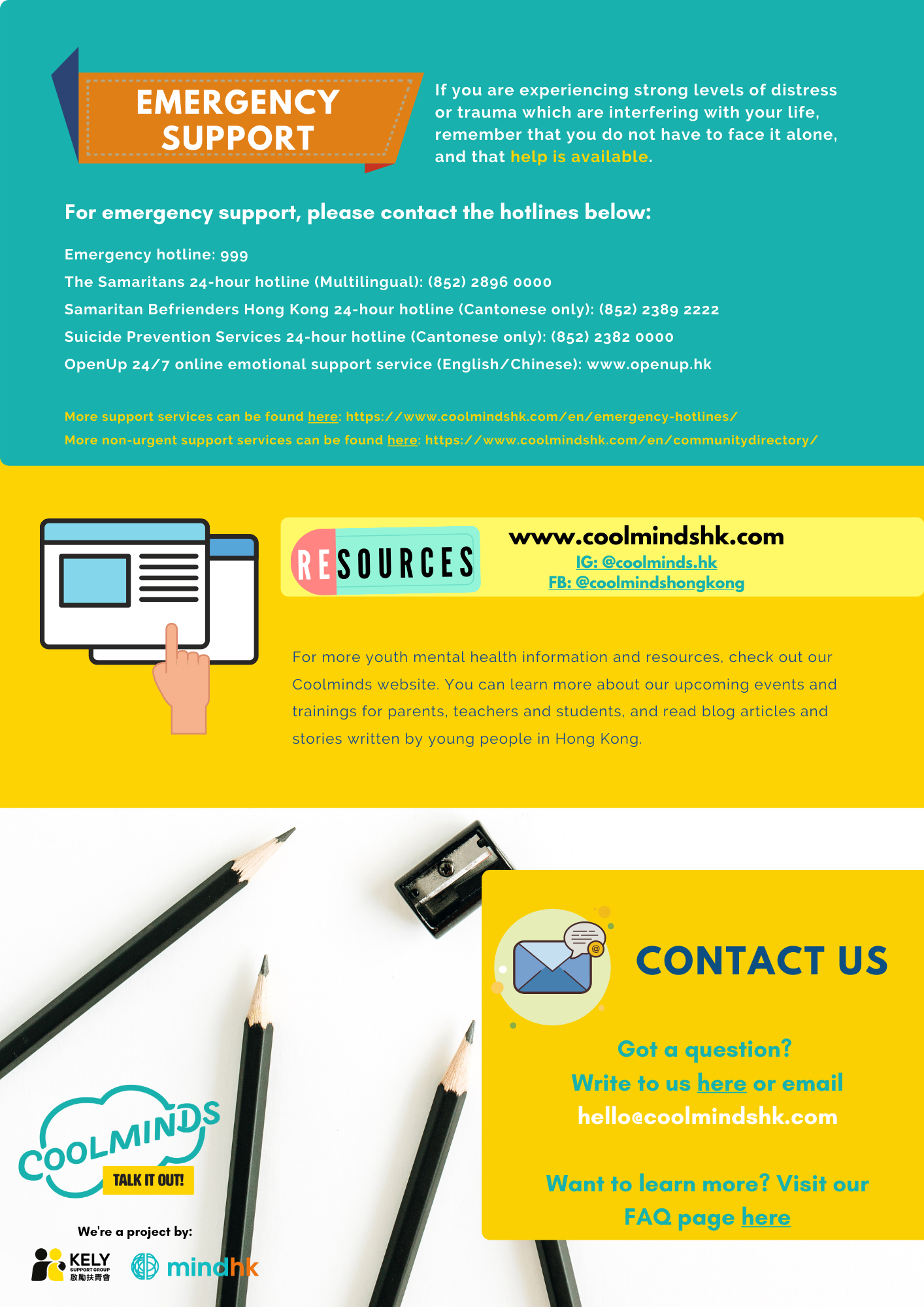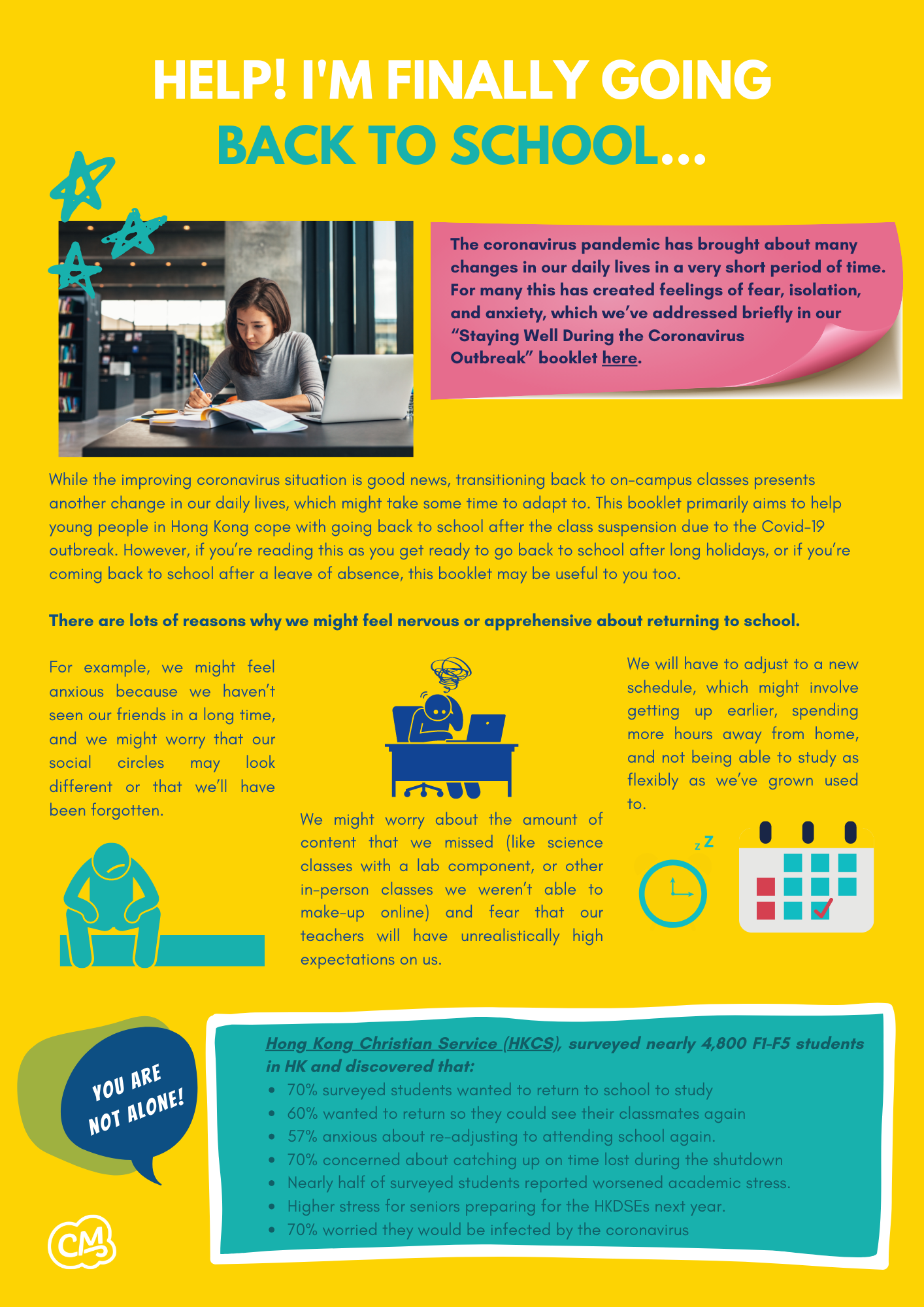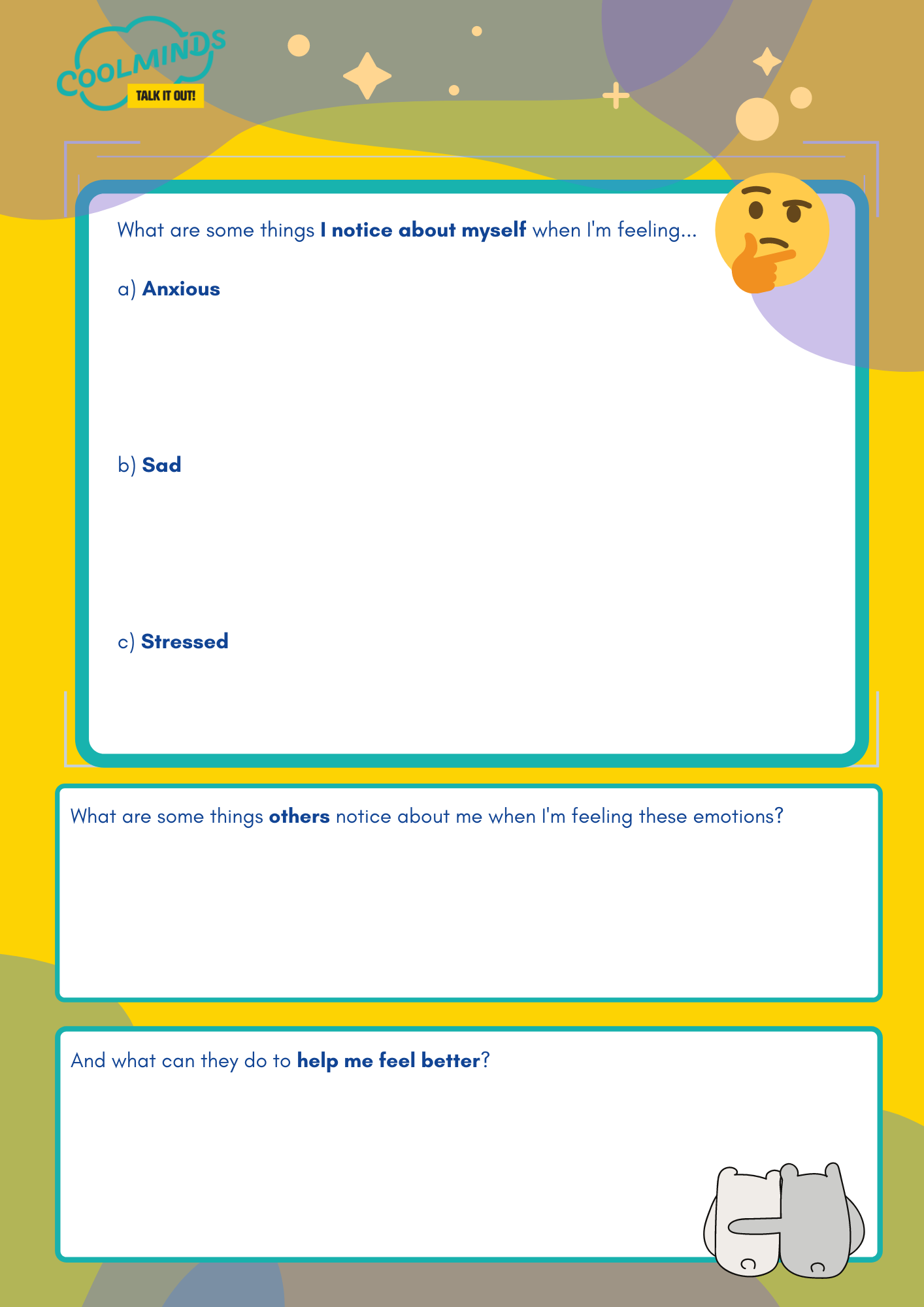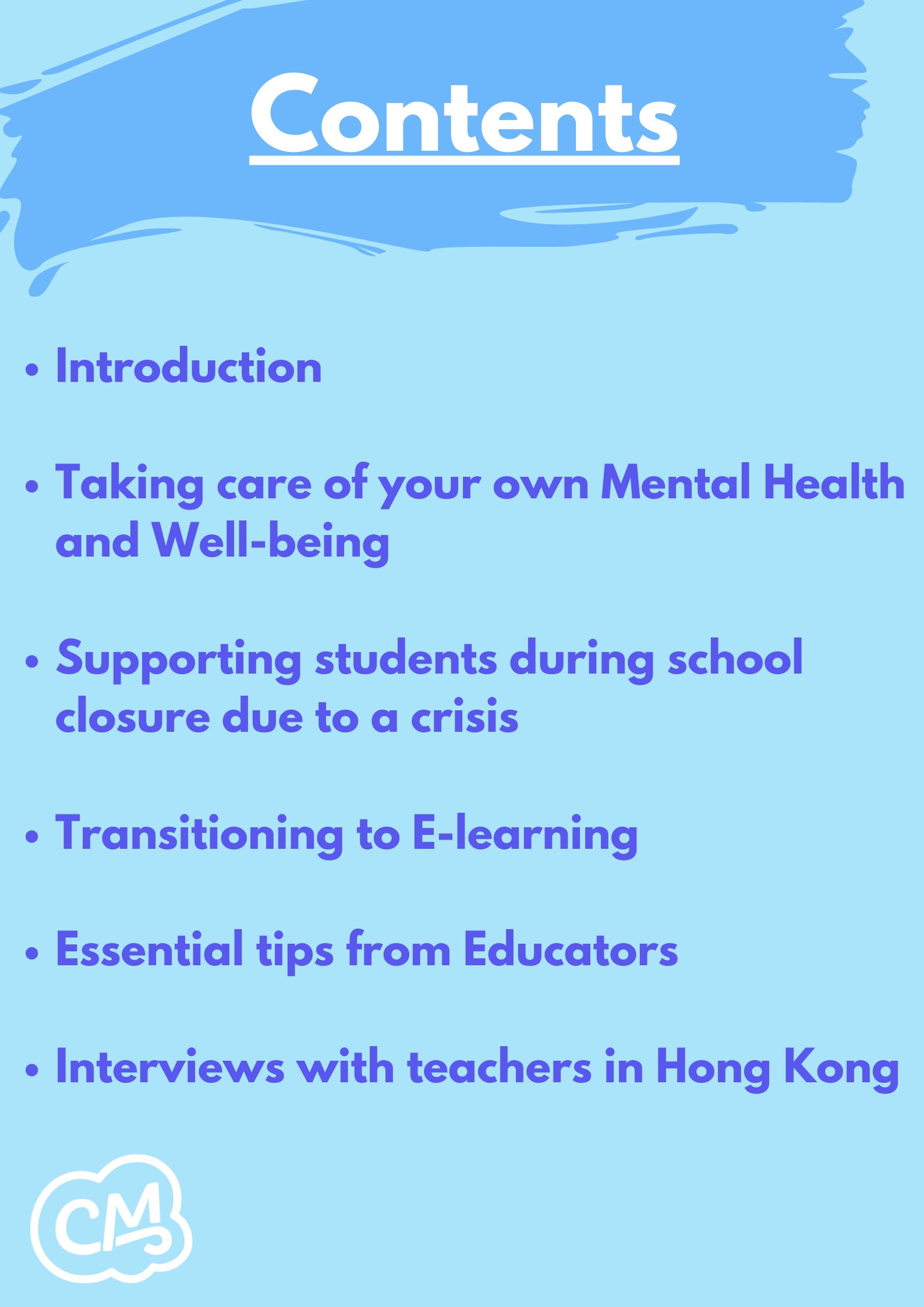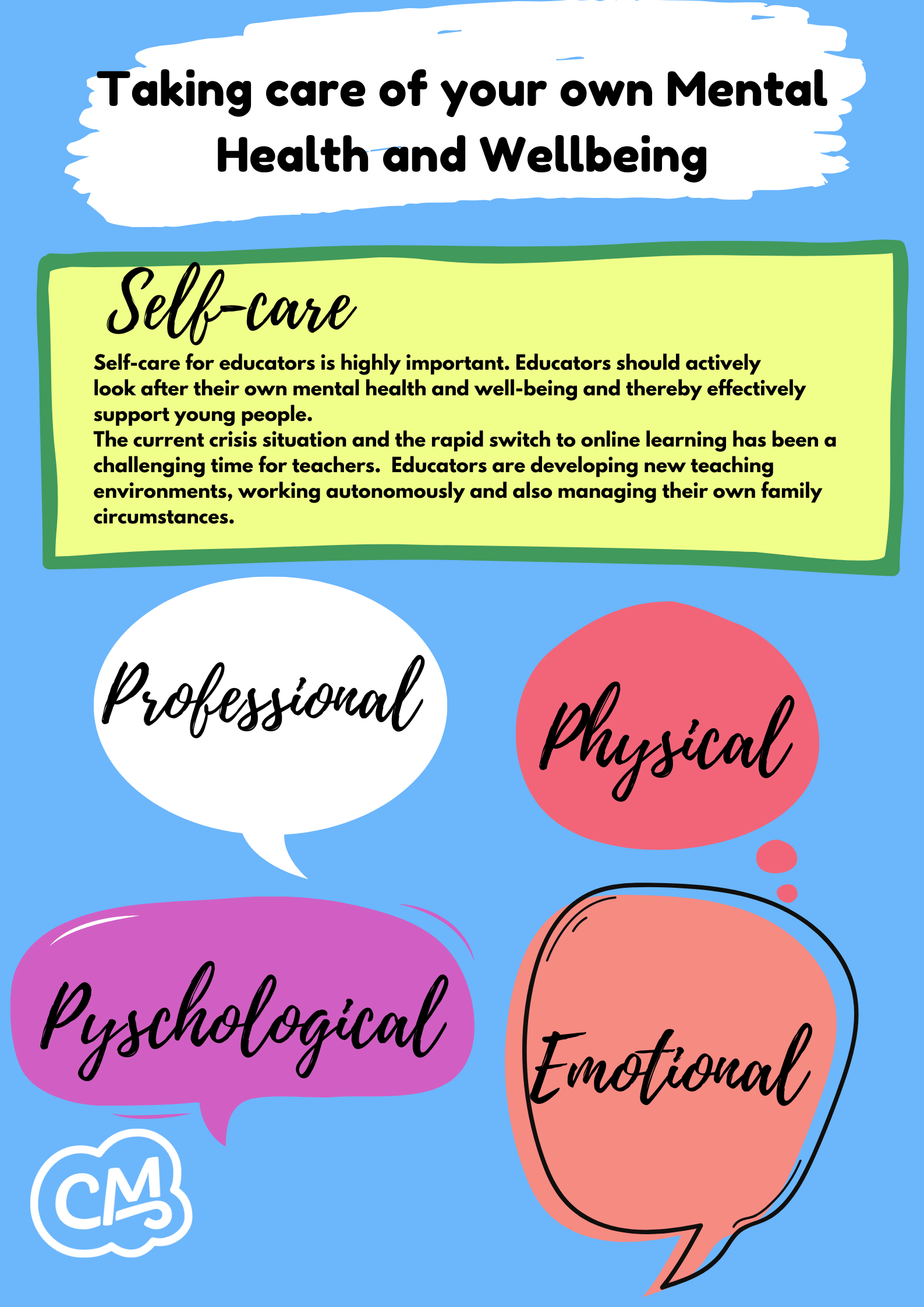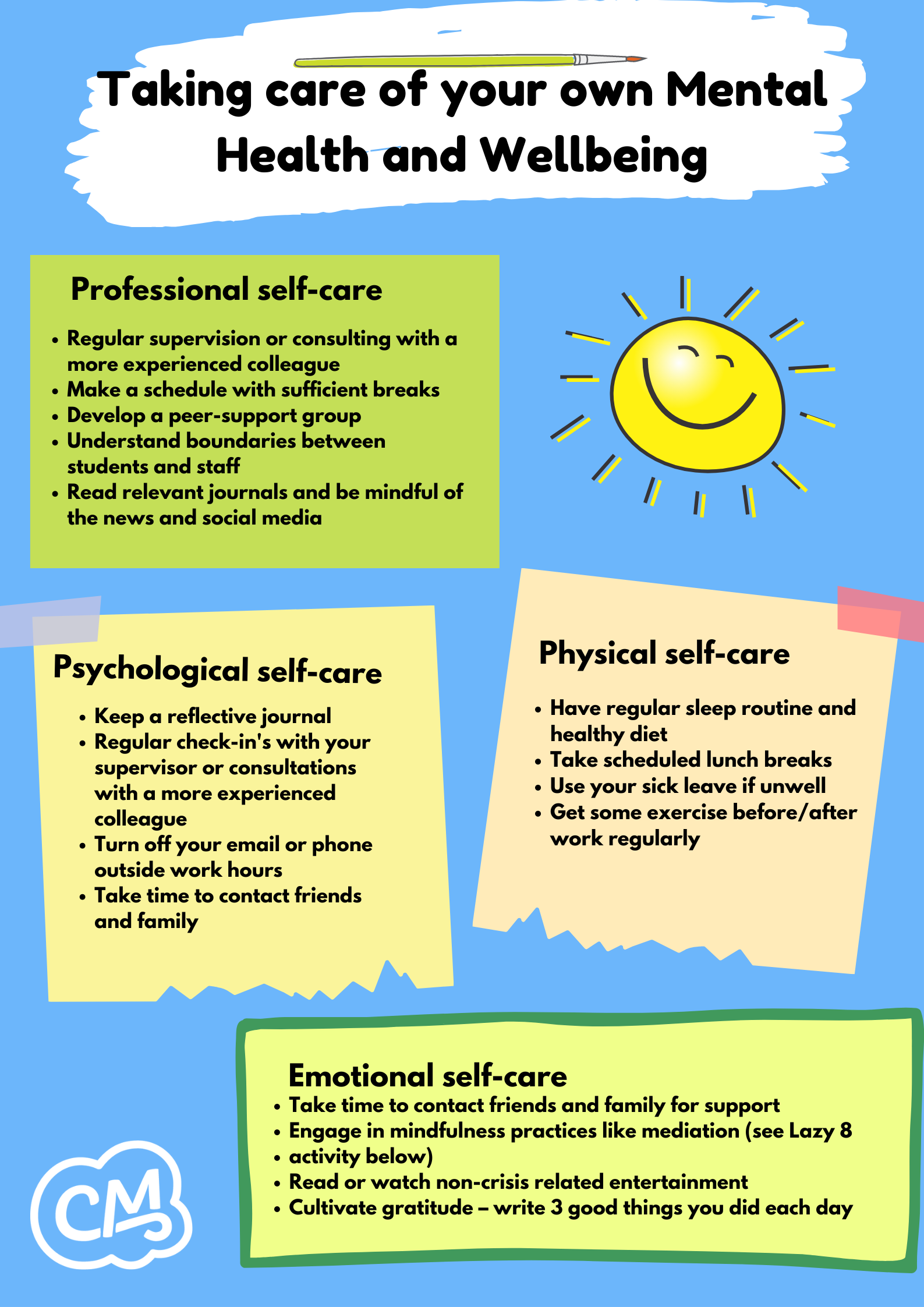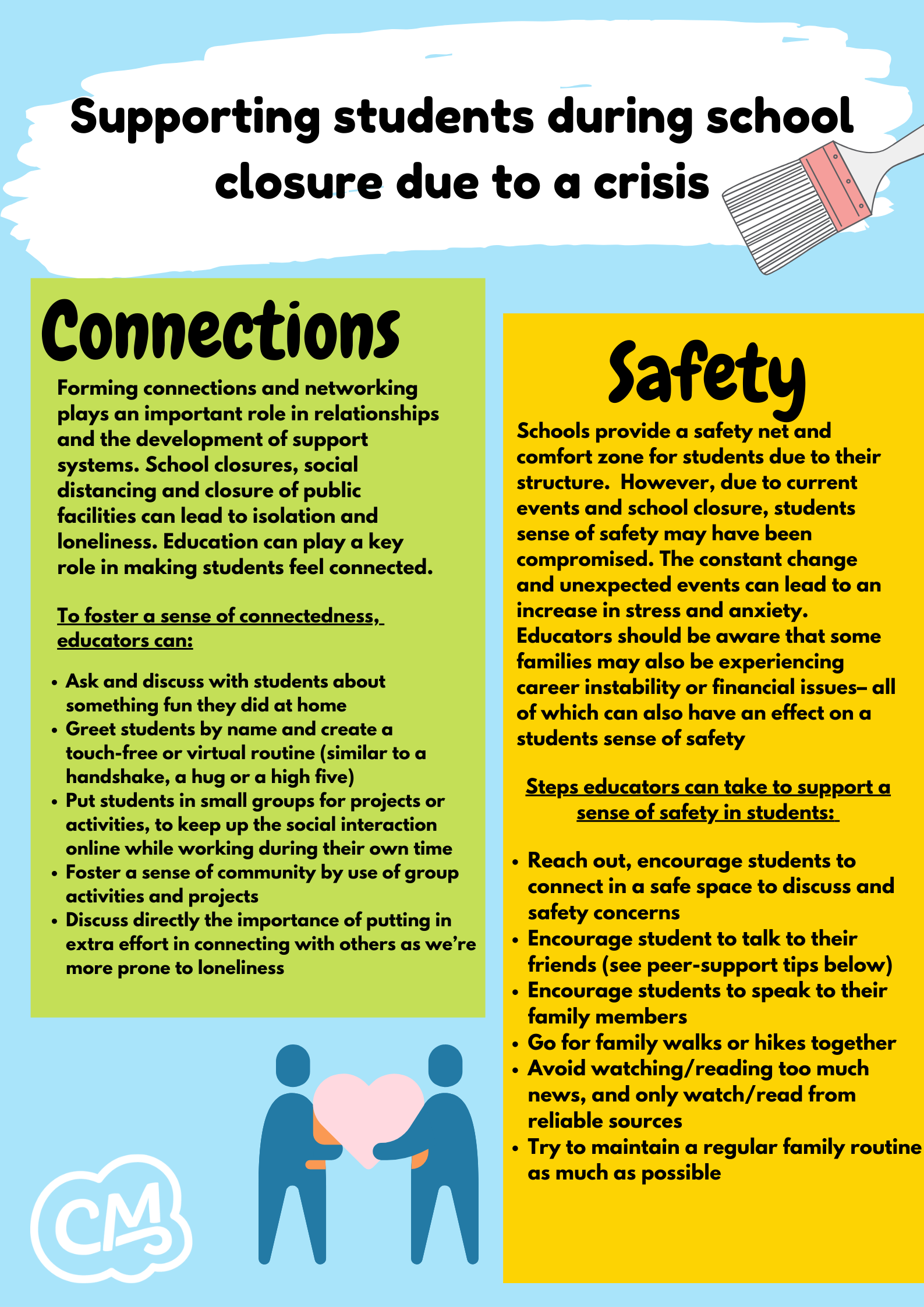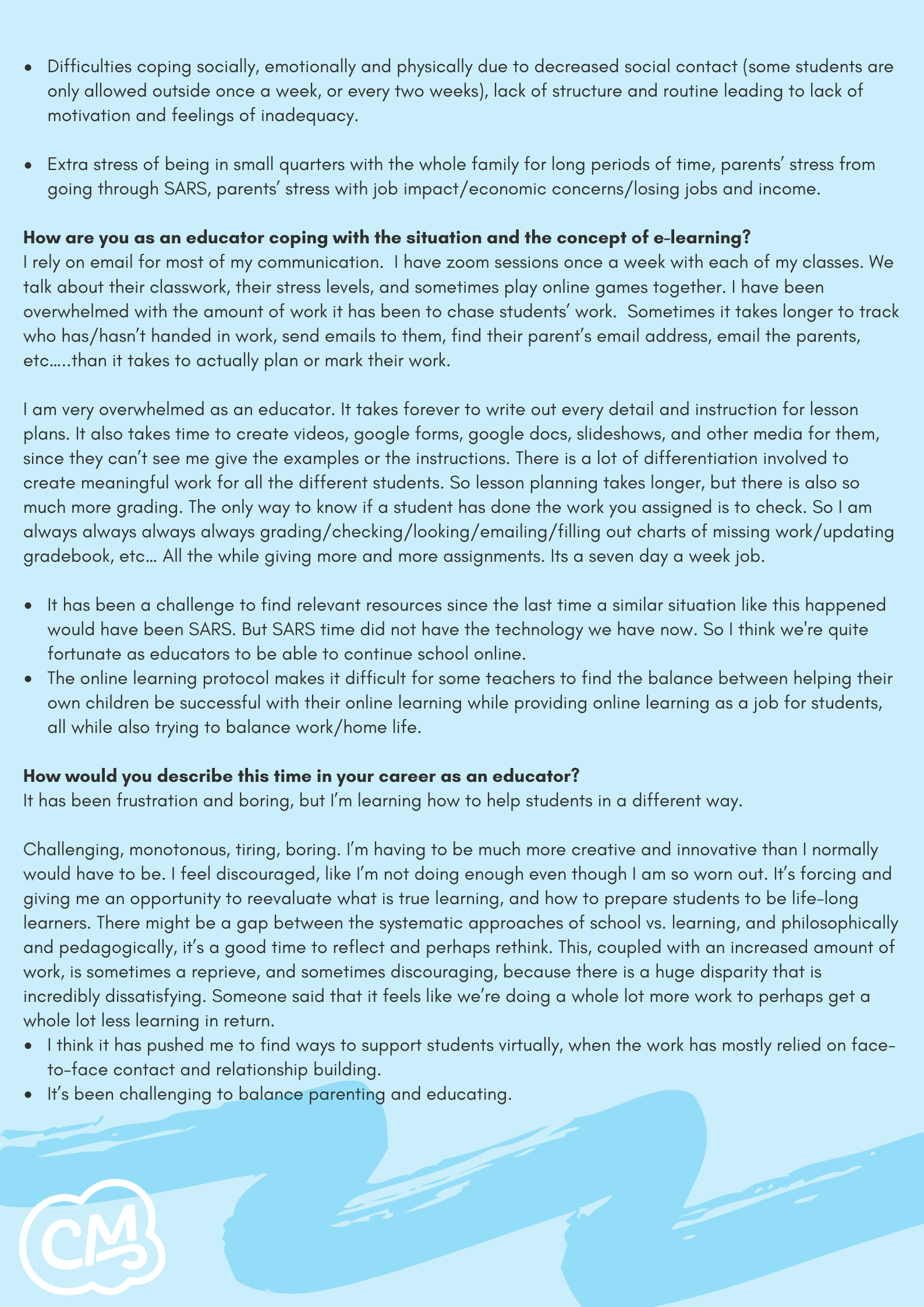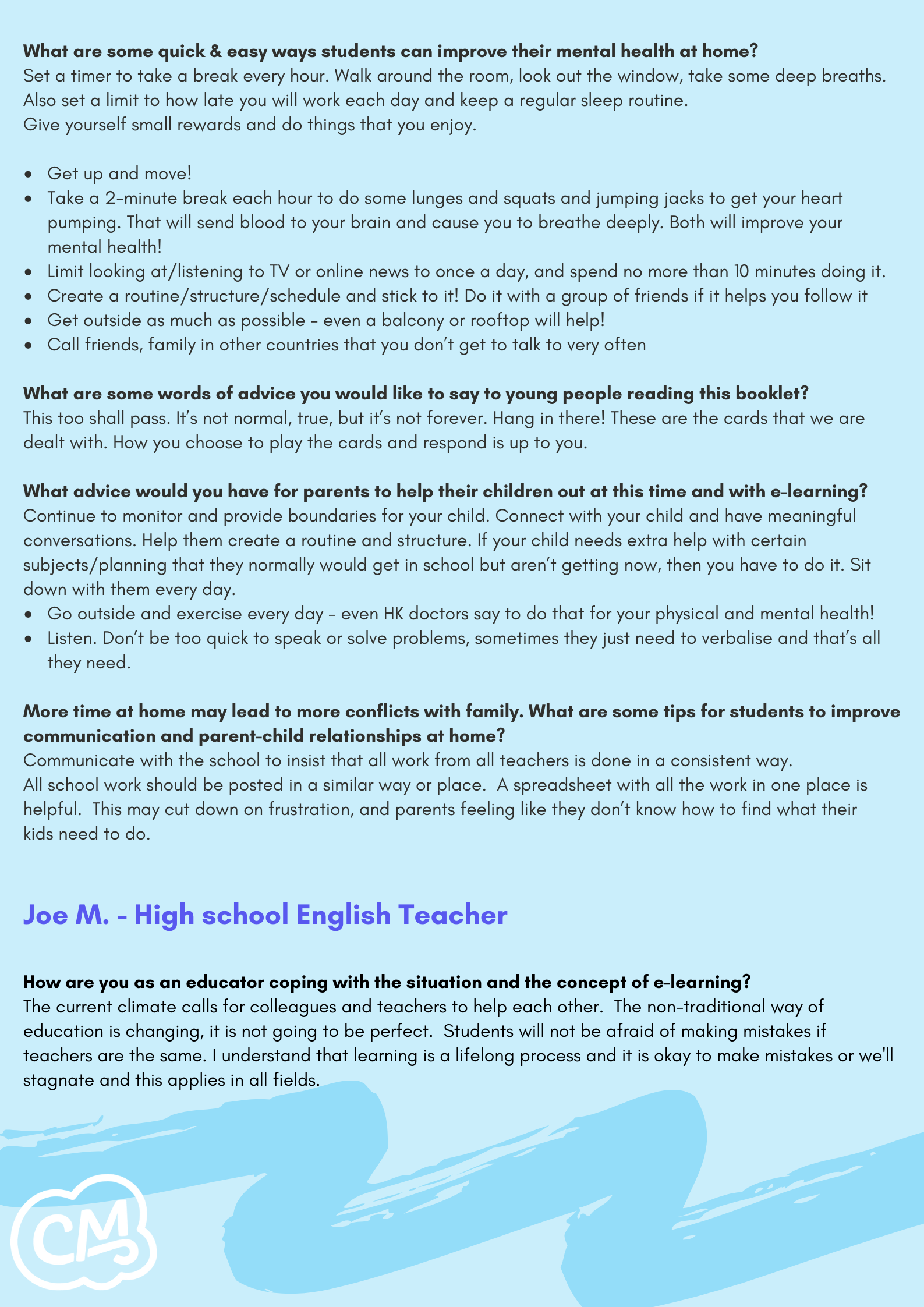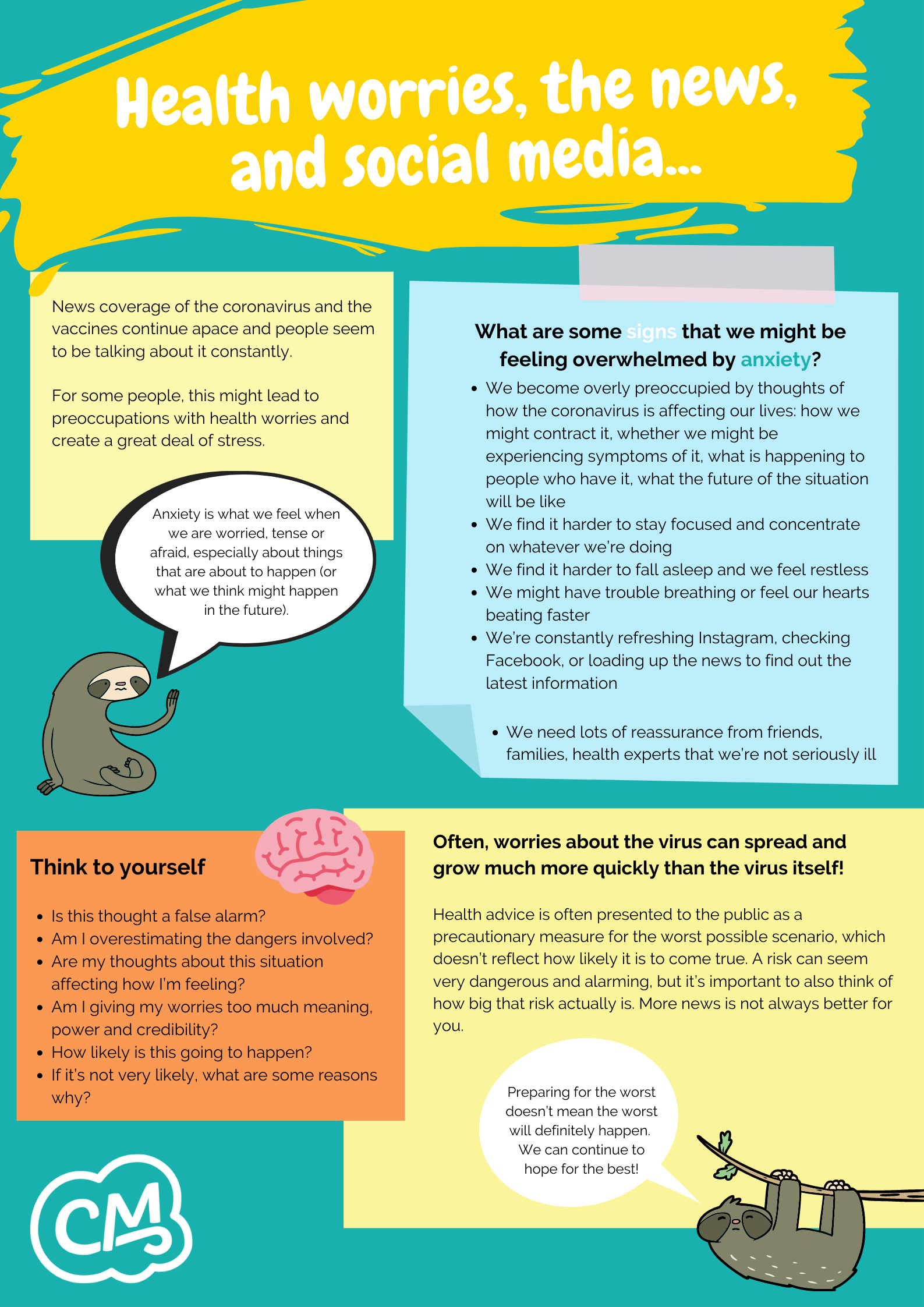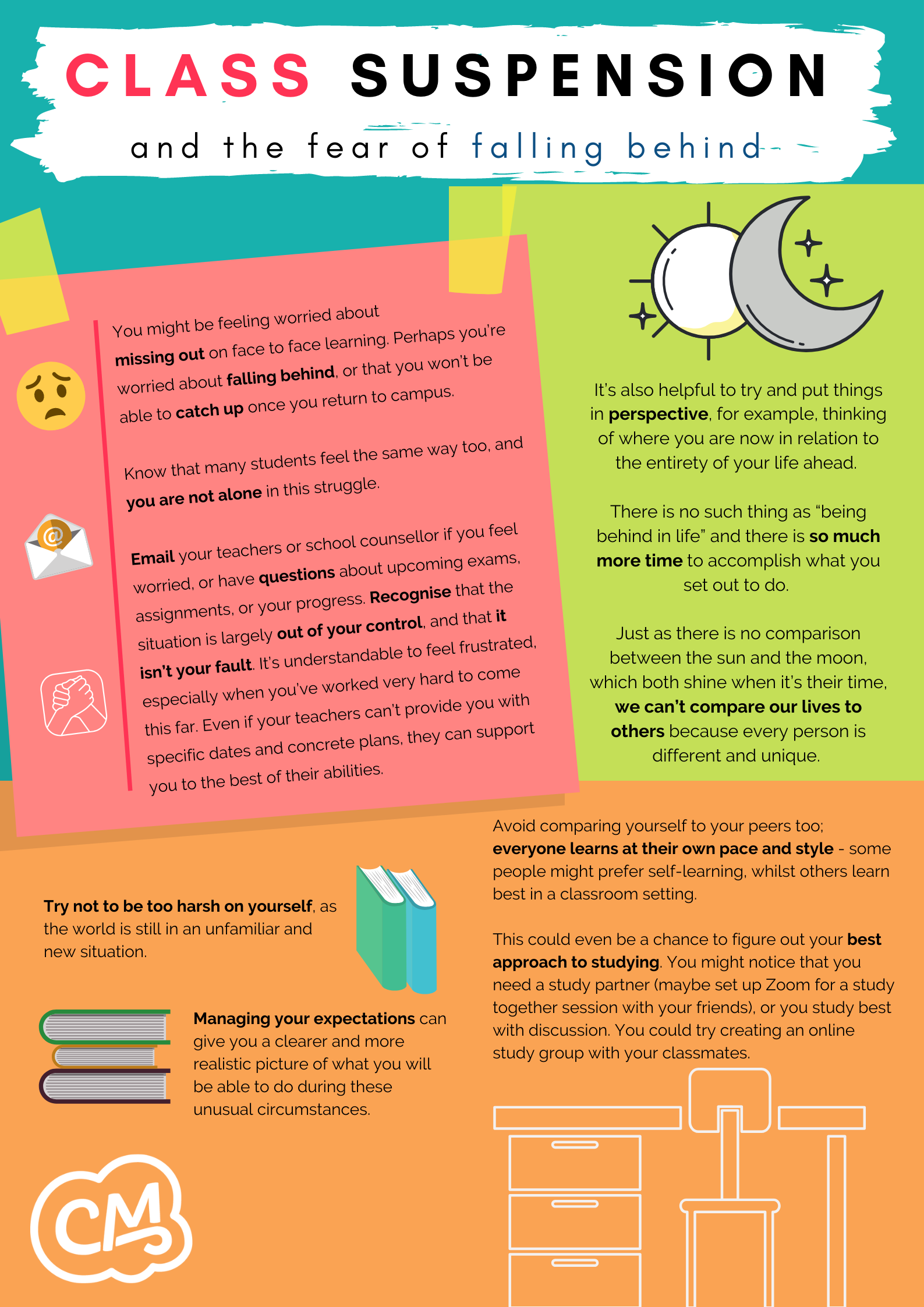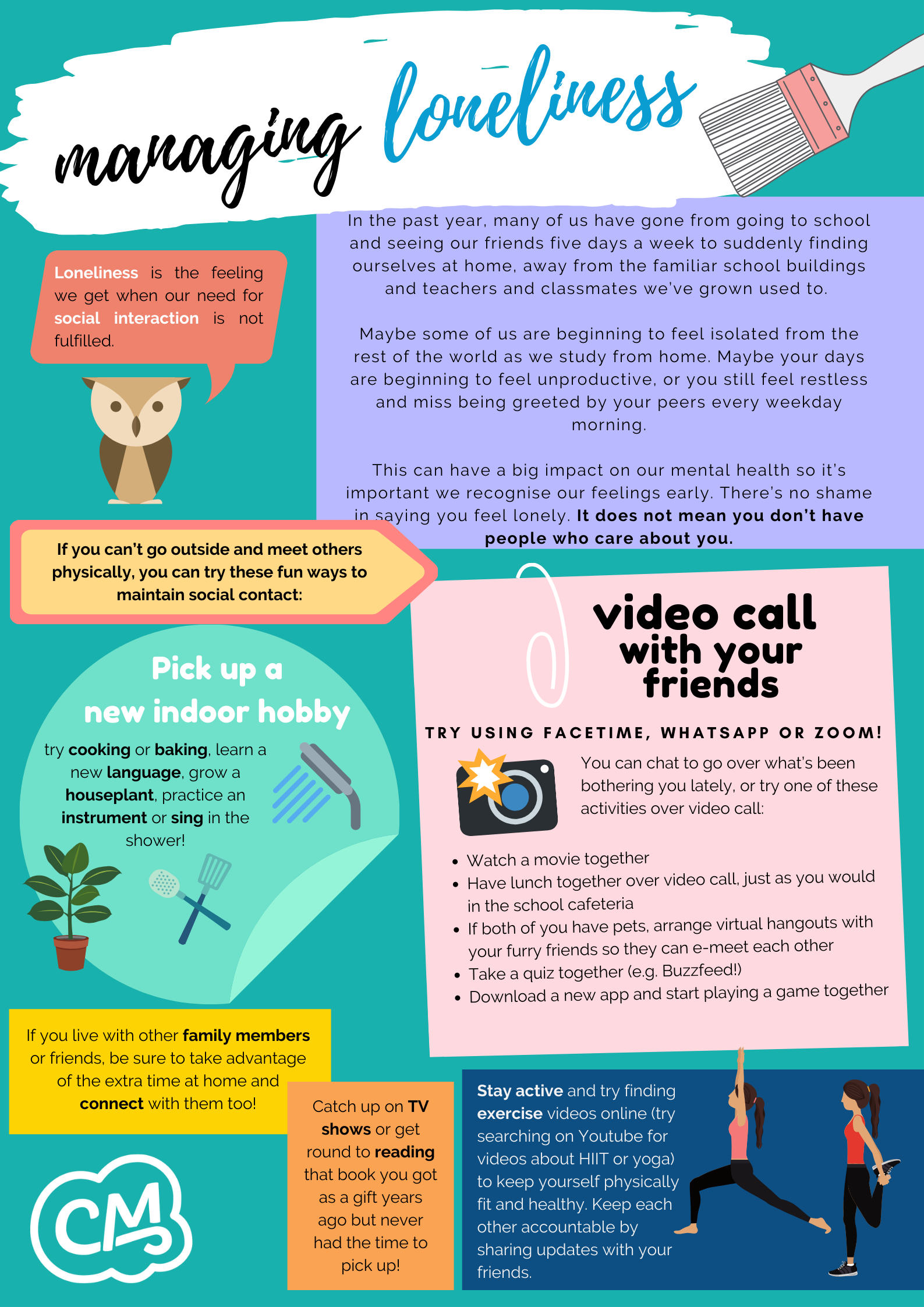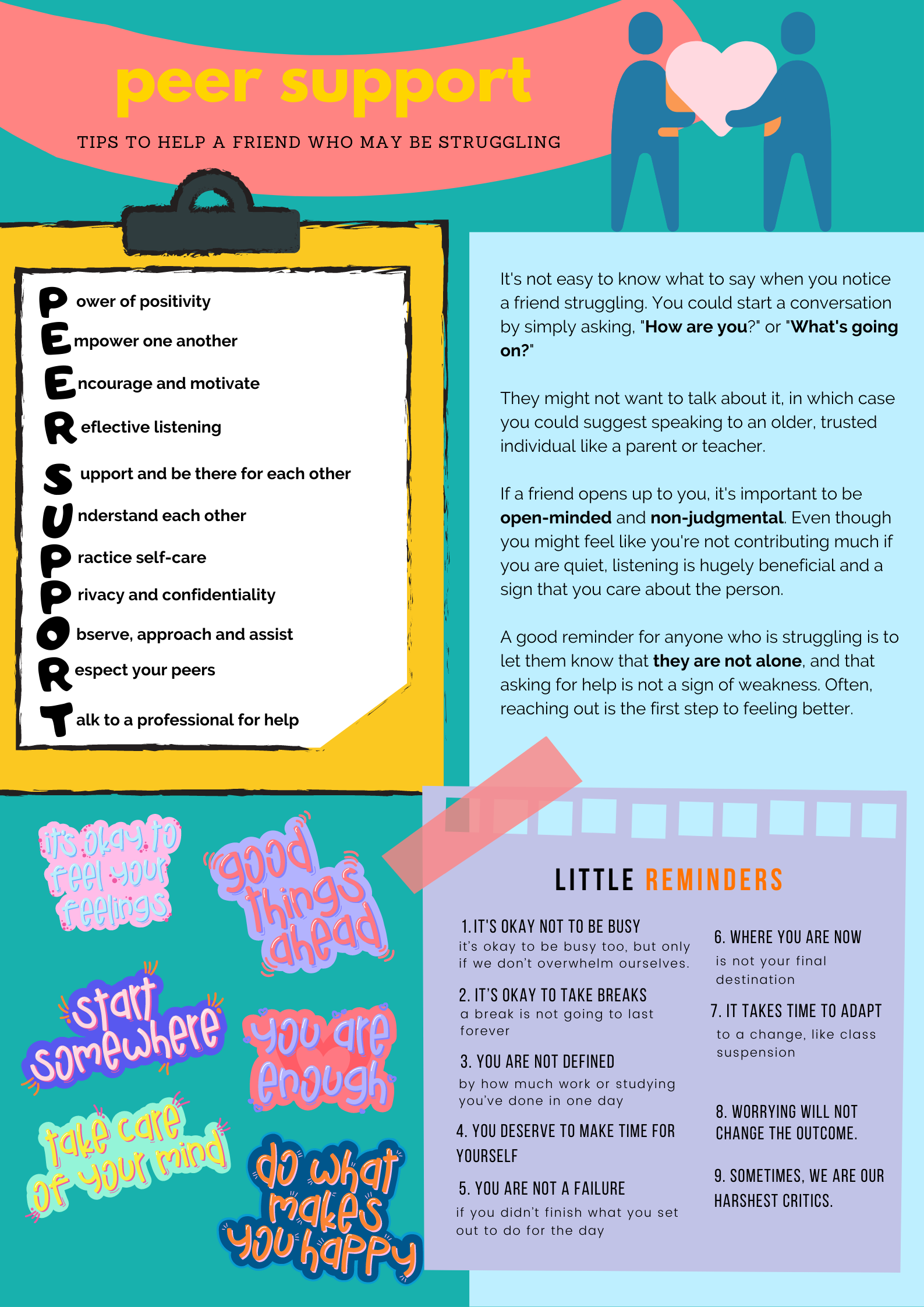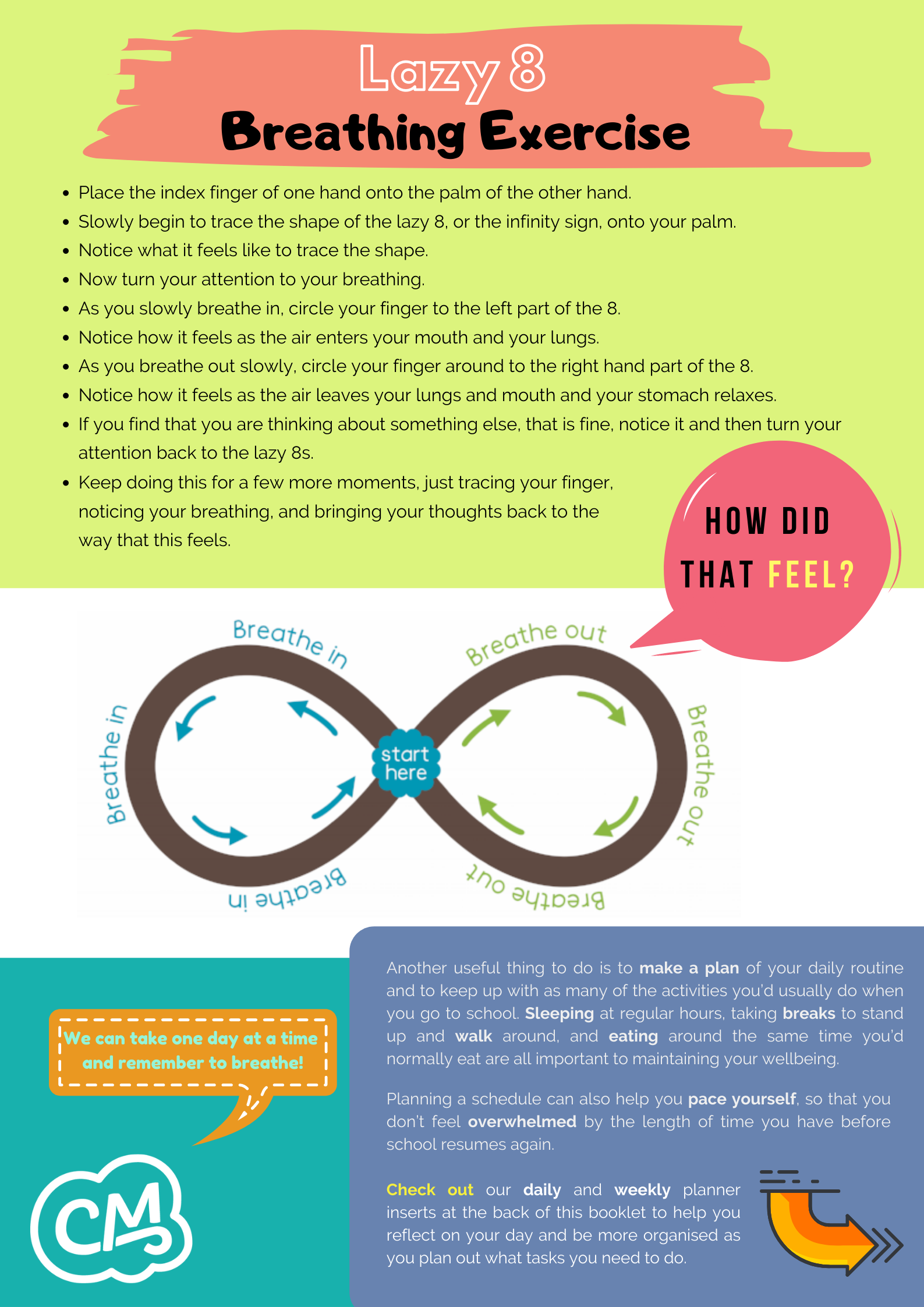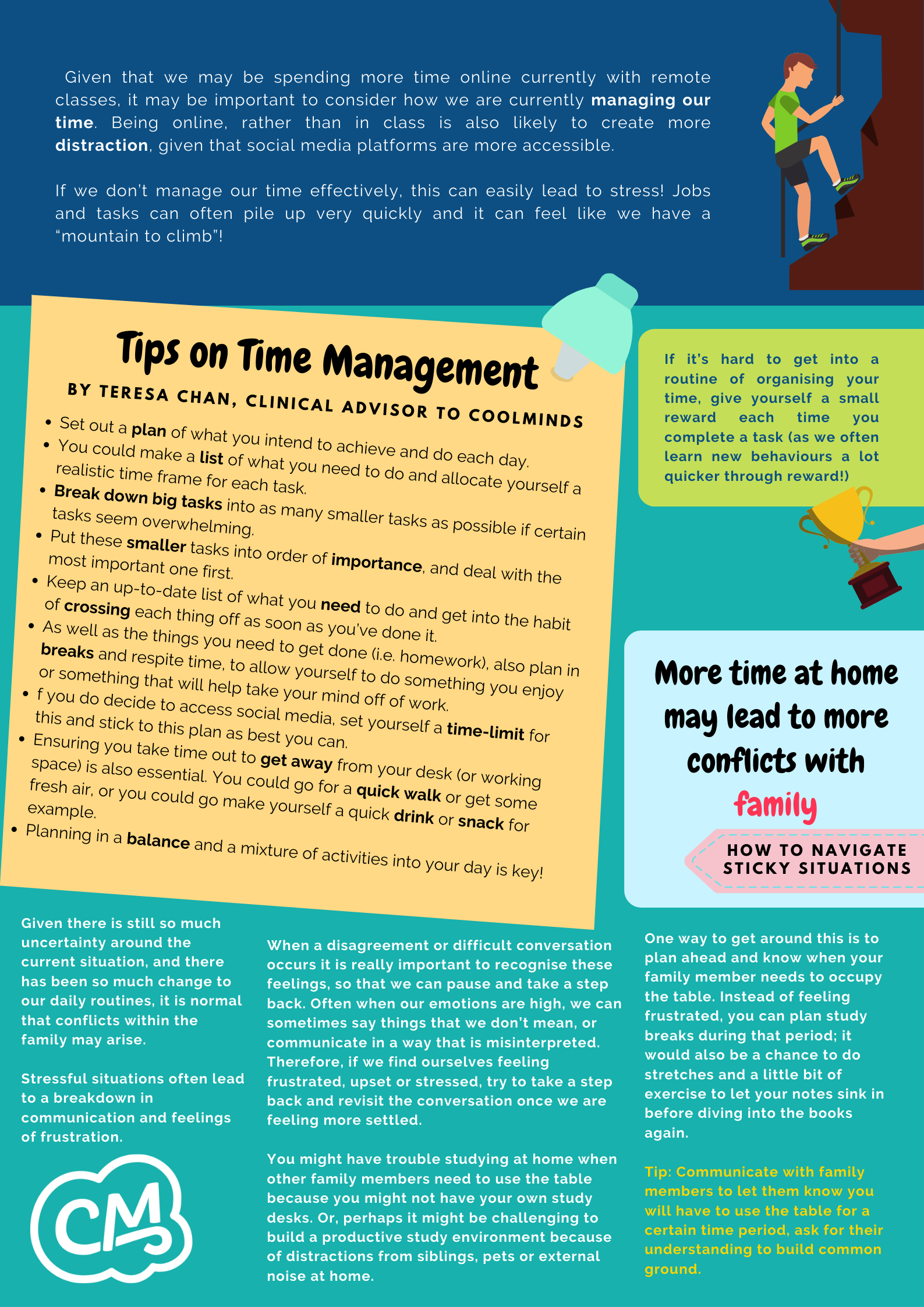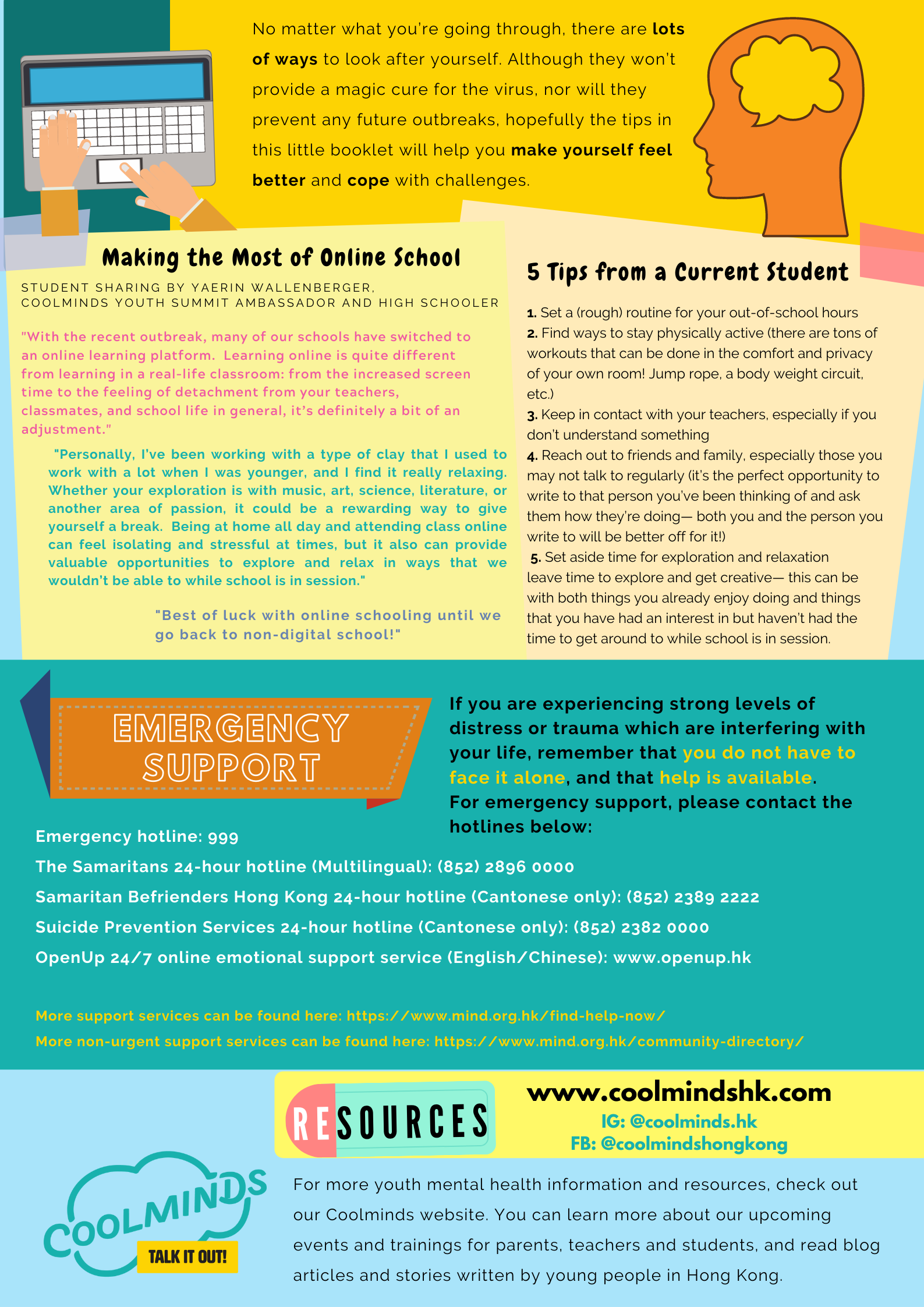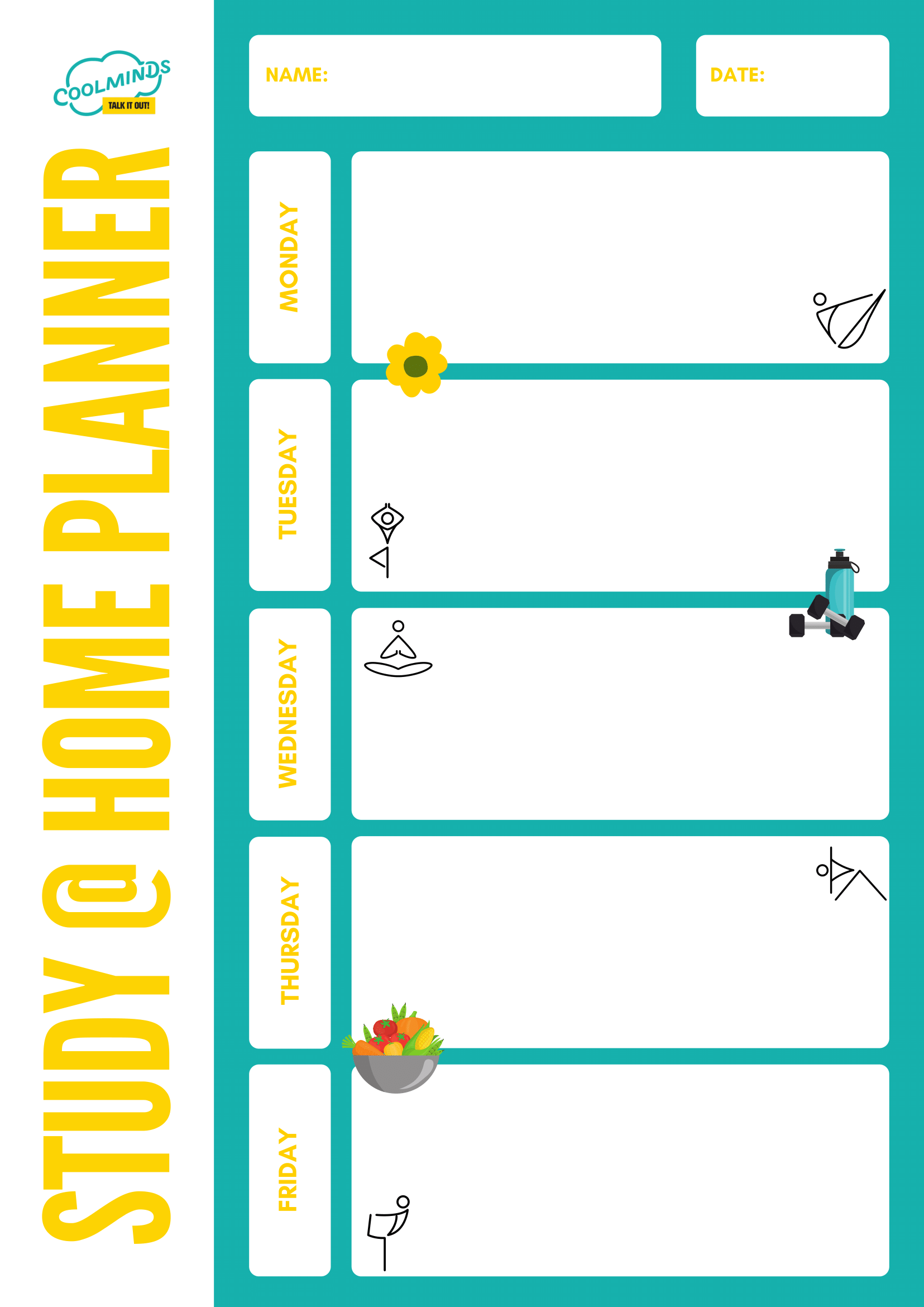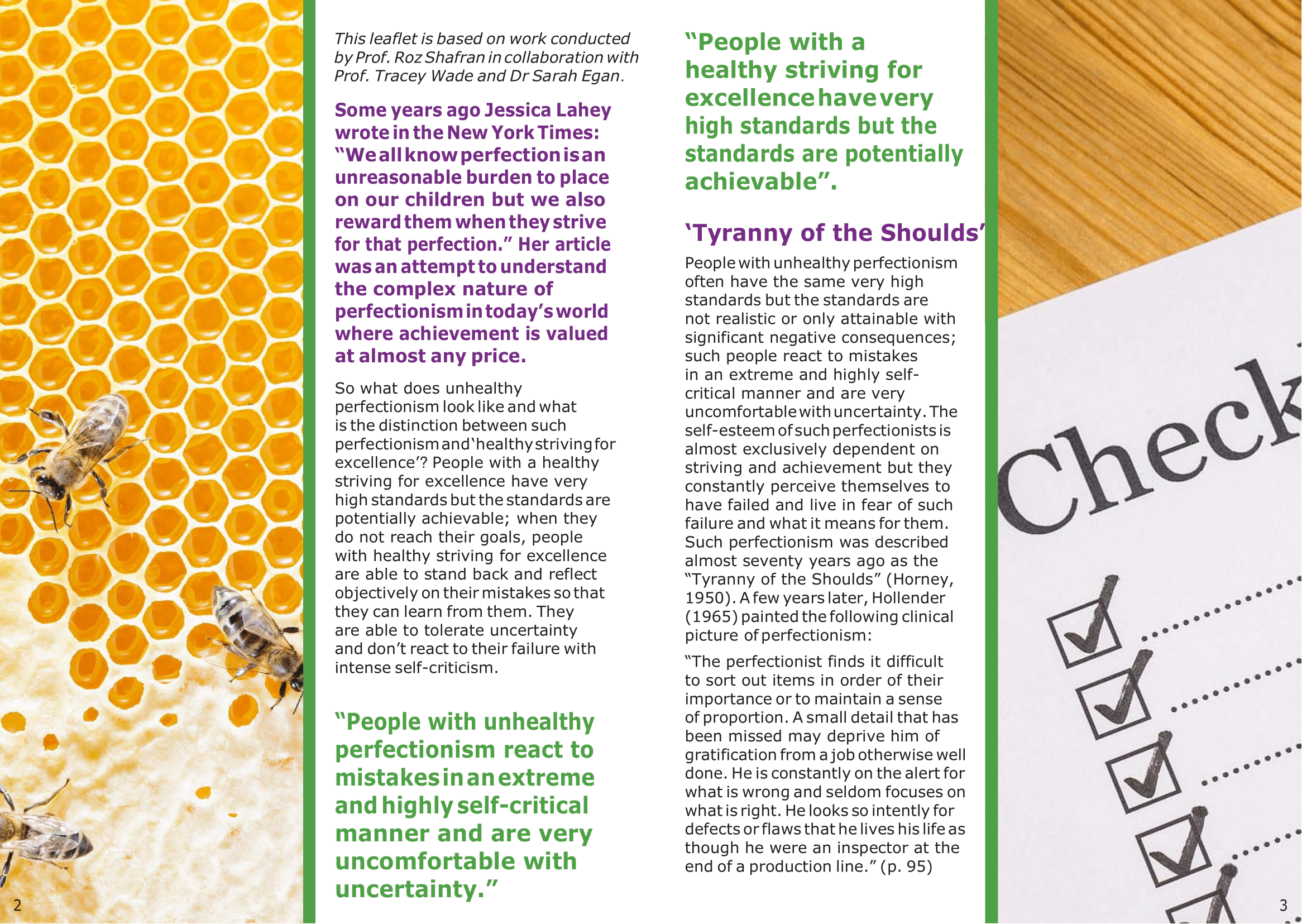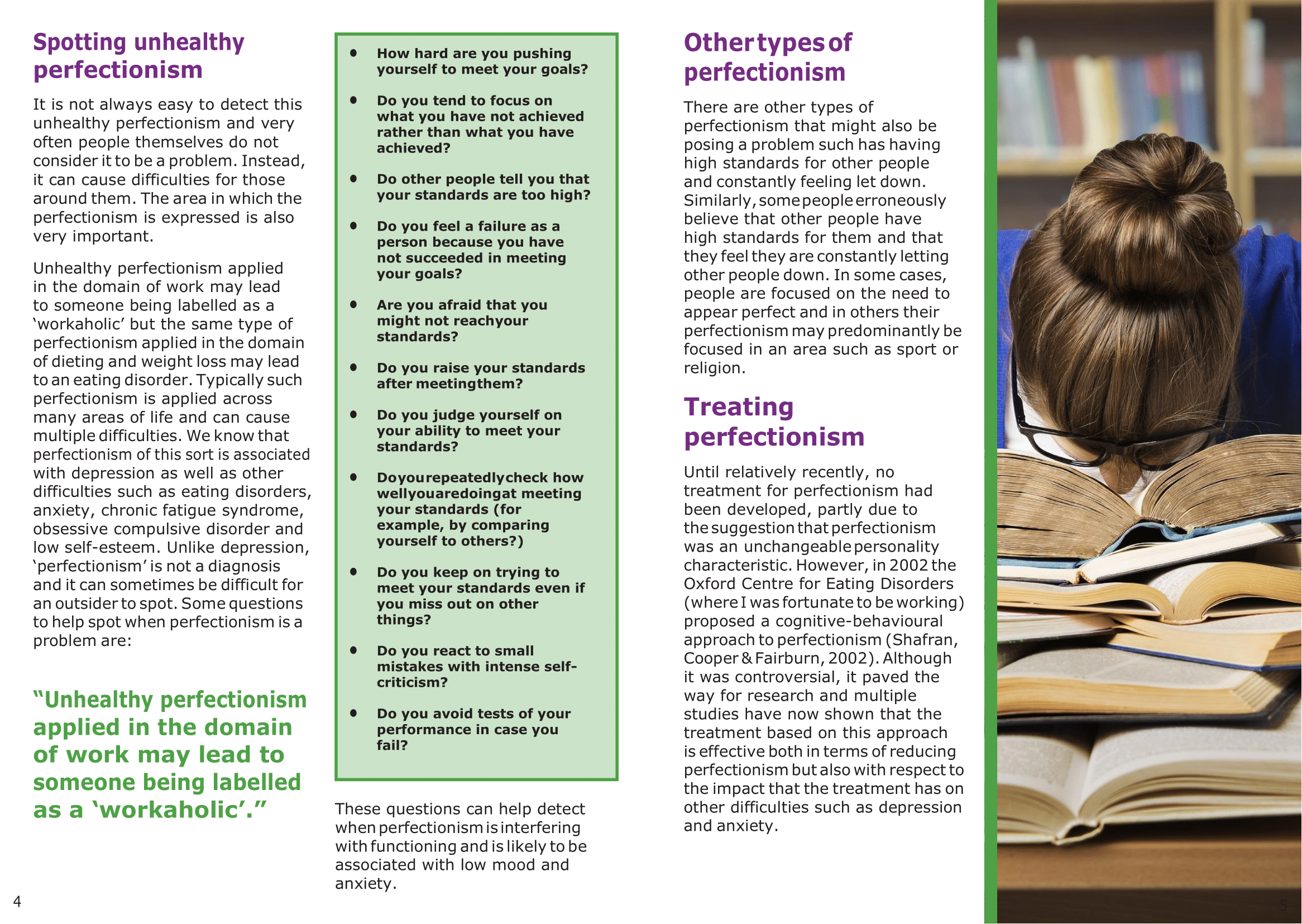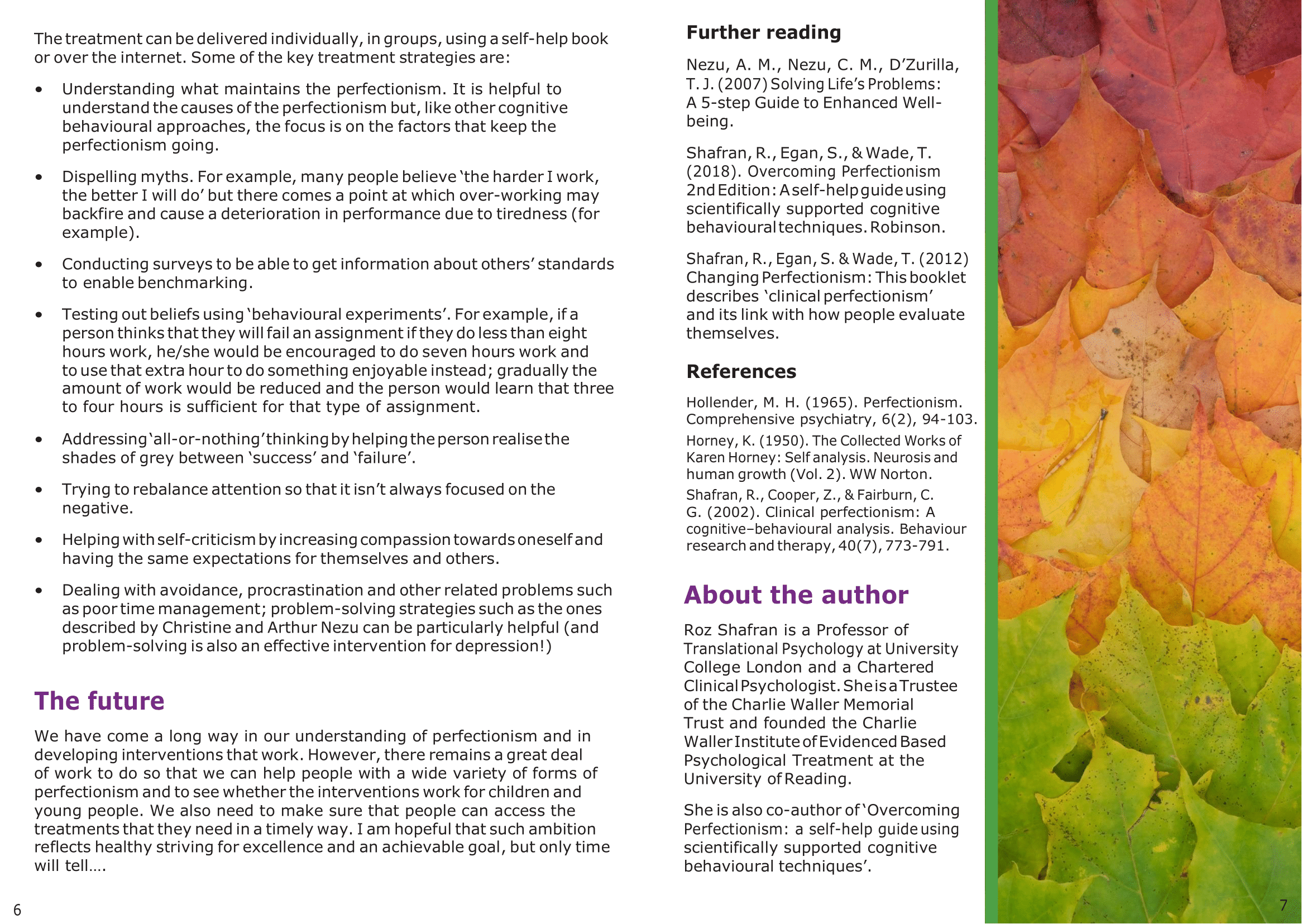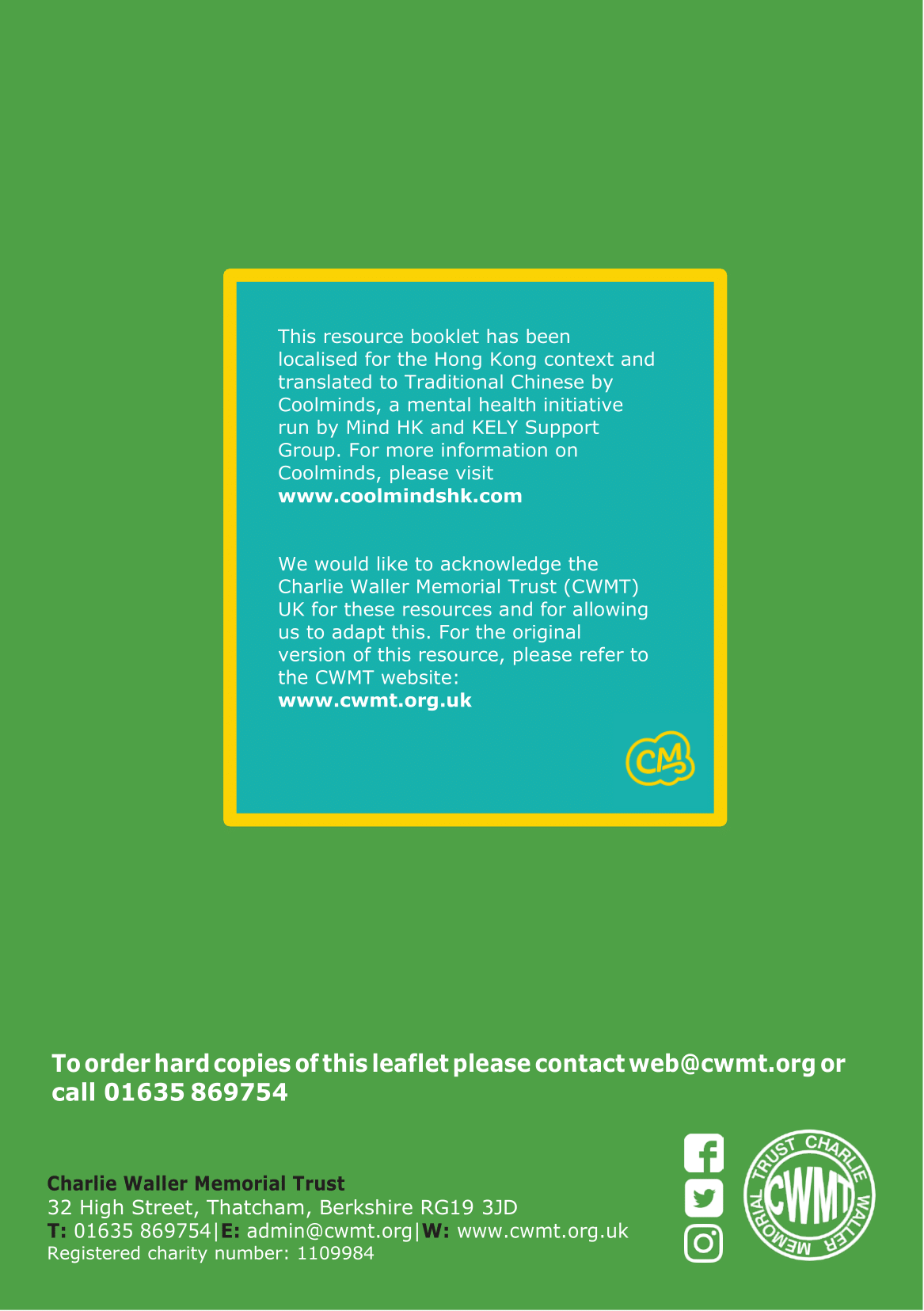Introduction
Recent efforts to contain the spread of COVID-19 through public health measures such as social distancing and self-isolation have led to closures of schools and universities in Hong Kong, which was then followed by the rest of the world.
This severe disruption of missing the entire term and cancellation of exams have impacted students, parents and educators. Hence, these are the times to work together and continue providing the best optimal support system for the students and themselves.
This sudden and unexpected change in routine along with a considerable degree of fear, worry and uncertainty can lead to poor mental health, not to mention an increased risk of use in drugs or alcohol.
As a result of school closures, teaching had no choice but to shift online at a rapid and unprecedented rate, resulting in numerous challenges (e.g. technical issues, inability to interact with students).
In addition, the lack of concrete information and uncertainty regarding the course of COVID-19 has led to an evident spike in stress and anxiety for students and teachers. Students and adults alike who are used to being in school for 5 days may experience isolation and loneliness from social distancing.
This booklet discusses how teachers can support students and their own well-being during a crisis. It also touches on the role of E-learning and the important role it plays in maintaining communication between students and teachers. In addition, full interviews conducted with teachers in Hong Kong are included to get a first-hand perspective on the teachers’ role and perspective in the current situation.
Taking care of your own Mental Health and Wellbeing
Self-care
Self-care for educators is highly important. Educators should actively look after their own mental health and well-being and thereby effectively support young people.
The current crisis situation and the rapid switch to online learning has been a challenging time for teachers. Educators are developing new teaching environments, working autonomously and also managing their own family circumstances.
Professional self-care
- Regular supervision or consulting with a more experienced colleague
- Make a schedule with sufficient breaks
- Develop a peer-support group
- Understand boundaries between students and staff
- Read relevant journals and be mindful of the news and social media
Physical self-care
- Have regular sleep routine and healthy diet
- Take scheduled lunch breaks
- Use your sick leave if unwell
- Get some exercise before/after work regularly
Psychological self-care
- Keep a reflective journal
- Regular supervision or consulting with a more experienced colleague
- Turn off your email or phone outside work hours
- Take time to contact friends and family
Emotional self-care
- Take time to contact friends and family for support
- Engage in mindfulness practices like mediation (see Lazy 8 activity below)
- Read or watch non-crisis related entertainment
- Cultivate gratitude – write 3 good things you did each day
Supporting students during school closure due to a crisis
Hope
Hope refers to the feelings or expectations that everything will work out. In the current climate, students may feel discouraged, hopelessness, anger or anxiety. These feelings may last as the community continues to face uncertainty.
Students and adults both may feel lost without their usual social activities which may have been taken for granted before. Missing out on the social aspects of school such as sports, friends, competitions or performances may be leading to further hopelessness.
To encourage/stimulate a sense of hope, educators can:
- Have students connect with someone in their family or community to ask a person they respect how they stayed hopeful in troubled times
- Reference other historical times of crisis, including how these ended and how communities rebounded
- Encourage students to get fresh air and to exercise when possible
- Share stories of hope to inspire students to discover positive takeaways they can gain from this current crisis
Connections
Forming connections and networking plays an important role in relationships and the development of support systems. School closures, social distancing and closure of public facilities can lead to isolation and loneliness. Education can play a key role in making students feel connected.
To foster a sense of connectedness, educators can:
- Ask and discuss with students about something fun they did at home
- Greet students by name and create a touch-free or virtual routine (similar to a handshake, a hug or a high five)
- Put students in small groups for projects or activities, to keep up the social interaction online while working during their own time
- Foster a sense of community by use of group activities and projects
- Discuss directly the importance of putting in extra effort in connecting with others as we’re more prone to loneliness
Safety
Schools provide a safety net and comfort zone for students due to their structure. However, due to current events and school closure, students’ sense of safety may have been compromised. The constant change and unexpected events can lead to an increase in stress and anxiety. Educators should be aware that some families may also be experiencing career instability or financial issues– all of which can also have an effect on a student’s sense of safety.
Steps educators can take to support a sense of safety in students:
- Reach out, encourage students to connect in a safe space to discuss and safety concerns
- Encourage student to talk to their friends (see peer-support tips below)
- Encourage students to speak to their family members
- Go for family walks or hikes together
- Avoid watching/reading too much news, and only watch/read from reliable sources
- Try to maintain a regular family routine as much as possible
Transitioning to E-Learning
Educators in Hong Kong and now worldwide have made the rapid and sudden switch to E-learning. Below are some steps you can take right now to assist with the process.
Remember: Take this opportunity to be supportive to students and allow flexibility!
Communicate as early as possible!
Start communicating with students as soon as schools close so teachers can stay in touch immediately. Let them know that even though you’re not meeting face to face, the student-teacher relationship still exists.
Understand and communicate with students, understand that E-learning is a new and challenging process for all.
Identify a platform for E-learning
Many schools have already leveraged a platform during potential closures. If not, free platforms such as Google classrooms and zoom for video conferencing are free and relatively easy to roll out.
Establish clear expectations
Operating in an online manner can raise many questions for students, parents and educators who are used to face to face interactions. Here are some simple guidelines:
- Teachers, admin and the school IT support should be available during normal working hours
- Student classes take place at their scheduled times with flexibility for differing timezones
Maintain regular contact
Educators stress that maintenance of communication during implementation of the E-learning process is the most important! This does not just include communication between students and teachers, but also among staff members to check in and see how they’re doing.
Interconnectivity between staff is vital to check in and share resources. Key factor is that everyone should remain in the loop and on the same page as much as possible.
Go with the flow
Anxiety and stress levels will be high during school closures. Expect there to be conflicts in timetables, lack of motivation from students, and downtime in responses.
Educators will play a key part during this essential time as community members. Practice empathy towards students and the current situation. Encourage students to become independent while providing them the essential support.
Essential tips from teachers
- Don’t ignore the elephant in the room. If possible, talk about COVID-19 and fear of uncertainty. This is an opportunity for you to remind your students to consider the sources of their news and to beware of the large amount of misinformation.
- Let your students know that you are there for them and that if they need help, they can reach out to you.
- Humanise yourself and also have casual conversations during online lessons. Tell them your experience about how you’re dealing with the situation or any concerns you may have. Discuss with them how it has been “working from home” from a teacher’s viewpoint.
- Share something personal with them such as which book you’ve started reading, you’re doing an online course or working out at home
- If possible, create a community discussion board for students to share what is happening in their lives stress, fear or anxiety due to uncertain time
- Communication must always remain consistent!
- In addition to supporting students, continue to challenge them and provide them with sufficient work to keep them engaged academically.
- Repeat some of the lessons you taught in class if possible. This will help activate their memory of that lesson and being part of the community. This is highly important for students missing the classroom and social settings
- Remain optimistic! With everyday changes and news, stress levels are bound to be high. Emphasize everyone is in this together.
- Encourage peer-relationship building! Encourage all students to share phone numbers or social media details and support each other.
Interviews with Teachers
Tutor from University of Hong Kong
What are some ways the COVID-19 outbreak has affected students and young people?
I think the timing of the outbreak has now added more uncertainty and trust issues to the already pervading anxiety and low morale in young people. Hong Kong runs on economics, and the loss of jobs, cancellation of recruitment seminars in universities and medical advice on limiting meetings/social gatherings has also had a negative effect on mental health.
How are you as an educator coping with the situation and the concept of e-learning?
E-learning is definitely an emergent idea that has a lot of potential. People have already been learning from various courses on platforms like edX, Coursera, TED, Datacamp etc. However, there are some limitations on online teaching when it comes to accommodating topics which are practical/laboratory oriented, e.g. I teach Petrology and the practicals involve examining the rocks by hand and under the microscope. Practical and hands on experience has its challenges with E-learning. It is a challenging time for educators and students.
What can students do if they feel stressed about:
Fears of falling behind coursework can be quickly remedied. If there are genuine reasons, the universities do show leniency and do offer extensions. I think the current policy is offering two choices: (a) switching a course to a non-graded one OR (b) dropping course altogether (there is no add/drop deadlines) and then picking it up in a later semester. In general students can discuss this with the course instructors/ course coordinators and let them know if they are having problems. They have been instructed to be more considerate.
- Comparing themselves to friends/peers and feeling unproductive?
Pandemic or no pandemic, comparison with peers is not a good habit to get into and leads to stigma. In my experience every individual is unique in their own speed of learning and comprehension. Trying to get a fish to climb a tree and judging them for it is an ineffective thing. One should learn things on their own speed and be confident about it.
The easiest step in overcoming loneliness is also the hardest step: Talk with friends, family and classmates and open up to them about your concerns. It is very likely they will share you concerns. Discuss options and workarounds with people and solutions are bound to surface.
- Feeling disconnected from being a student/their teacher?
Yes, this might be problem to those people who are more attuned to conventional classrooms. We are trying to address any questions arising during the live lectures (slideshow + recordings + videoconferencing) and email until such time the normal function of the university resumes.
Can students email teachers with any questions they might have? Is it appropriate for students to reach out to teachers saying they feel stressed/have been struggling with their mental health?
Students can freely reach out their teachers with any queries they have with the coursework, but no specific instructions have been given to lecturers/teachers on dispensing mental health advice to students. Letting course instructors know of your situation is definitely a good idea though. It is most likely they will direct students to university therapists/counsellors/ university health service to manage the situation.
What are some tips you would have as a teacher for the student’s online learning experience? How can they study effectively at home?
Online learning can be a little distracting at times especially if you have other browser pages open alongside. I think the best way to avoid getting distracted is go take notes while the lecture is happening online and quickly ask questions to clear doubts. Make sure you keep cellphones away during the lectures and this would help too. As far as self-study is concerned, create a fixed daily routine with adequate breaks in between. And most importantly, when you finish studying, do other interesting things, build hobbies. The partitioning of work and non-work hours is critical to cognition and learning.
What are some quick and easy ways they can improve their mental health at home?
Read books, exercise, paint, garden, take walks (with masks on), and most importantly talk to family or friends. The feeling of being cooped up can be driven away when you immerse yourself in creative and productive activities.
What are some words of advice you would like to say to other teachers or parents reading this booklet?
Mental health issues cannot be solved in isolation by those suffering from it. Do not disregard a child’s/student’s concerns on coursework. If they are failing to submit assignments on time, check in on them and offer to help where help is needed. A judgement-free environment is quintessential. In many cases, if students are falling behind in coursework, it is not because they are lazy, but the fact that they are going through problems they are finding difficult to solve. Usually, a small push in the right direction really helps them produce the best work they can.
Teachers from International Christian School
What are some ways the COVID-19 outbreak has affected students?
Students are bored, unmotivated, lonely, worried. Many can’t even leave their apartments. They can’t do “normal” activities and spend as much time with friends. They’re stuck at home with their parents in a sometimes unpleasant way – everyone is feeling stressed and might be taking it out on each other.
Students have been thrown very suddenly into the “deep end” , a very steep and very sudden learning curve to cope is expected of them. They could be facing pressure from multiple sides: parents and teachers, and even themselves. Time management and self-discipline challenges, and isolation etc. compound to the issue.
- Difficulties coping socially, emotionally and physically due to decreased social contact (some students are only allowed outside once a week, or every two weeks), lack of structure and routine leading to lack of motivation and feelings of inadequacy.
- Extra stress of being in small quarters with the whole family for long periods of time, parents’ stress from going through SARS, parents’ stress with job impact/economic concerns/losing jobs and income.
How are you as an educator coping with the situation and the concept of e-learning?
I rely on email for most of my communication. I have zoom sessions once a week with each of my classes. We talk about their classwork, their stress levels, and sometimes play online games together. I have been overwhelmed with the amount of work it has been to chase students’ work. Sometimes it takes longer to track who has/hasn’t handed in work, send emails to them, find their parent’s email address, email the parents, etc…..than it takes to actually plan or mark their work.
I am very overwhelmed as an educator. It takes forever to write out every detail and instruction for lesson plans. It also takes time to create videos, google forms, google docs, slideshows, and other media for them, since they can’t see me give the examples or the instructions. There is a lot of differentiation involved to create meaningful work for all the different students. So lesson planning takes longer, but there is also so much more grading. The only way to know if a student has done the work you assigned is to check. So I am always always always always grading/checking/looking/emailing/filling out charts of missing work/updating gradebook, etc… All the while giving more and more assignments. It’s a seven day a week job.
- It has been a challenge to find relevant resources since the last time a similar situation like this happened would have been SARS. But SARS time did not have the technology we have now. So I think we’re quite fortunate as educators to be able to continue school online.
- The online learning protocol makes it difficult for some teachers to find the balance between helping their own children be successful with their online learning while providing online learning as a job for students, all while also trying to balance work/home life.
How would you describe this time in your career as an educator?
It has been frustration and boring, but I’m learning how to help students in a different way.
Challenging, monotonous, tiring, boring. I’m having to be much more creative and innovative than I normally would have to be. I feel discouraged, like I’m not doing enough even though I am so worn out. It’s forcing and giving me an opportunity to reevaluate what is true learning, and how to prepare students to be life-long learners. There might be a gap between the systematic approaches of school vs. learning, and philosophically and pedagogically, it’s a good time to reflect and perhaps rethink. This, coupled with an increased amount of work, is sometimes a reprieve, and sometimes discouraging, because there is a huge disparity that is incredibly dissatisfying. Someone said that it feels like we’re doing a whole lot more work to perhaps get a whole lot less learning in return.
- I think it has pushed me to find ways to support students virtually, when the work has mostly relied on face-to-face contact and relationship building.
- It’s been challenging to balance parenting and educating.
What can students do if they feel stressed about:
- Falling behind?
- Keep up with daily tasks. Communicate with teachers, do 1 thing to start, make a list and start crossing things off it as you complete them, make a schedule
- Be self-disciplined, and learn to understand consequences of their choices. Pacing is important.
- Use a planner/make a list of work to be done, prioritize work, communicate with teachers the need for more time or help
- Reach out earlier – don’t wait! – to teachers, counsellor and/or classmates who can help with support and practical help with school work/explaining things etc.
- The outbreak affecting their future?
- Focus on the “now” – take thoughts captive and seek guidance from others. Refocus thoughts on what is known, true and helpful, talk to someone about their worries
- Focus on the now, rather than worrying about the unknown and what might be. Focus on the things they have control over and only worry about those things
- Comparing themselves to friends/peers or feeling unproductive?
Know that many students and even teachers are struggling with the lack of routine and productivity. Try to give more compassion to the self, as this is an adjustment to everyone (not just Hong Kong but worldwide).
Call a friend; don’t just text them. Talking isn’t the same as being in person, but it’s better than just reading what’ s been written. Sometimes when I’ve felt lonely it has helped me to think that others probably feel the same way. Write messages to others thanking them for something, asking them how they are, or telling a story. Sometimes the act of helping others not feel lonely takes the feeling away from oneself.
Is it appropriate for students to reach out to teachers to say they feel stressed or have been struggling with their mental health?
Students need to be assertive and let someone know. Hopefully, students have an adult at school that they trust, whether it is a particular teacher or a coach. Teachers do the job they do because they care about students. Even if we are not trained to deal with a situation, we know how to connect that student to someone who is. Even just verbalising to someone who is trusted & won’t judge you can be a big step toward seeing things in a more positive light.
What are some tips you would give as a teacher for students’ online learning experience? How can they study effectively at home?
Complete the daily tasks. Leave the phone alone; set it in a different room and only use it during designated breaks. Know why you’re learning and doing what you’re doing so you stay on task and “work” becomes more meaningful.
Having done online learning myself in the past, I found that it is very easy to get behind and then almost impossible to catch up. Stay up to date if not ahead as much as possible. If anything is keeping you from completing work, write your teacher as soon as possible so they are aware.
Use a timer and set small goals for yourself. Chunk out the work into manageable steps.
What are some quick & easy ways students can improve their mental health at home?
Set a timer to take a break every hour. Walk around the room, look out the window, take some deep breaths. Also set a limit to how late you will work each day and keep a regular sleep routine. Give yourself small rewards and do things that you enjoy.
- Get up and move!
- Take a 2-minute break each hour to do some lunges and squats and jumping jacks to get your heart pumping. That will send blood to your brain and cause you to breathe deeply. Both will improve your mental health!
- Limit looking at/listening to TV or online news to once a day, and spend no more than 10 minutes doing it.
- Create a routine/structure/schedule and stick to it! Do it with a group of friends if it helps you follow it
- Get outside as much as possible – even a balcony or rooftop will help!
- Call friends, family in other countries that you don’t get to talk to very often
What are some words of advice you would like to say to young people reading this booklet?
This too shall pass. It’s not normal, true, but it’s not forever. Hang in there! These are the cards that we are dealt with. How you choose to play the cards and respond is up to you.
What advice would you have for parents to help their children out at this time and with e-learning?
Continue to monitor and provide boundaries for your child. Connect with your child and have meaningful conversations. Help them create a routine and structure. If your child needs extra help with certain subjects/planning that they normally would get in school but aren’t getting now, then you have to do it. Sit down with them every day.
- Go outside and exercise every day – even HK doctors say to do that for your physical and mental health!
- Listen. Don’t be too quick to speak or solve problems, sometimes they just need to verbalise and that’s all they need.
More time at home may lead to more conflicts with family. What are some tips for students to improve communication and parent-child relationships at home?
Communicate with the school to insist that all work from all teachers is done in a consistent way. All school work should be posted in a similar way or place. A spreadsheet with all the work in one place is helpful. This may cut down on frustration, and parents feeling like they don’t know how to find what their kids need to do.
Joe M. – High school English Teacher
How are you as an educator coping with the situation and the concept of e-learning?
The current climate calls for colleagues and teachers to help each other. The non-traditional way of education is changing, it is not going to be perfect. Students will not be afraid of making mistakes if teachers are the same. I understand that learning is a lifelong process and it is okay to make mistakes or we’ll stagnate and this applies in all fields.
I found it is important to check with other teachers and see in what ways they are adapting. It’s also important to see how much work they’re giving so the students are not overburdened.
Would you describe this as a challenging time in your career as an educator?
Yes really interesting as it forces educators to look at the technological tools as we already have our way of doing things so we’re less open to electronic tools. I’ve been teaching for 25 years and this has been the biggest transition. The younger years are more welcoming to come on the camera than the older ones. Hence, working with growing adolescents combined with E-learning and technology has further implications.
I found the young people are very adaptable as per the situation. They’re very well versed with technology and problem solving.
What is your advice to students and teachers during the current period?
Students have different personalities and hence cannot be grouped together. As a teacher I need to understand that young people are stressed about a variety of factors such as academics, social interactions, conflicts, and the future.
Studying from home has allowed students to become autonomous. I’ve noted that the older students are liking the aspect of independence and organising and scheduling their own schedules. I have noticed that individual work has improved including their English writing and comprehension. Hence, as a teacher I firmly believe young people have the ability to show great resilience during tough times and change.
Speaking of giving young people autonomy, I’ve taken away the concept of deadlines but focused on giving them day to day work and focus on discussions. Some students have complained that they’re in fact getting extra work now as teachers are giving them more assignments for grading. Hence it is important to adapt and listen to what students are saying so we can all work together.
Students are really missing the social aspect of school. This serves as a great opportunity and rare change for parents to really bond with their children!














































